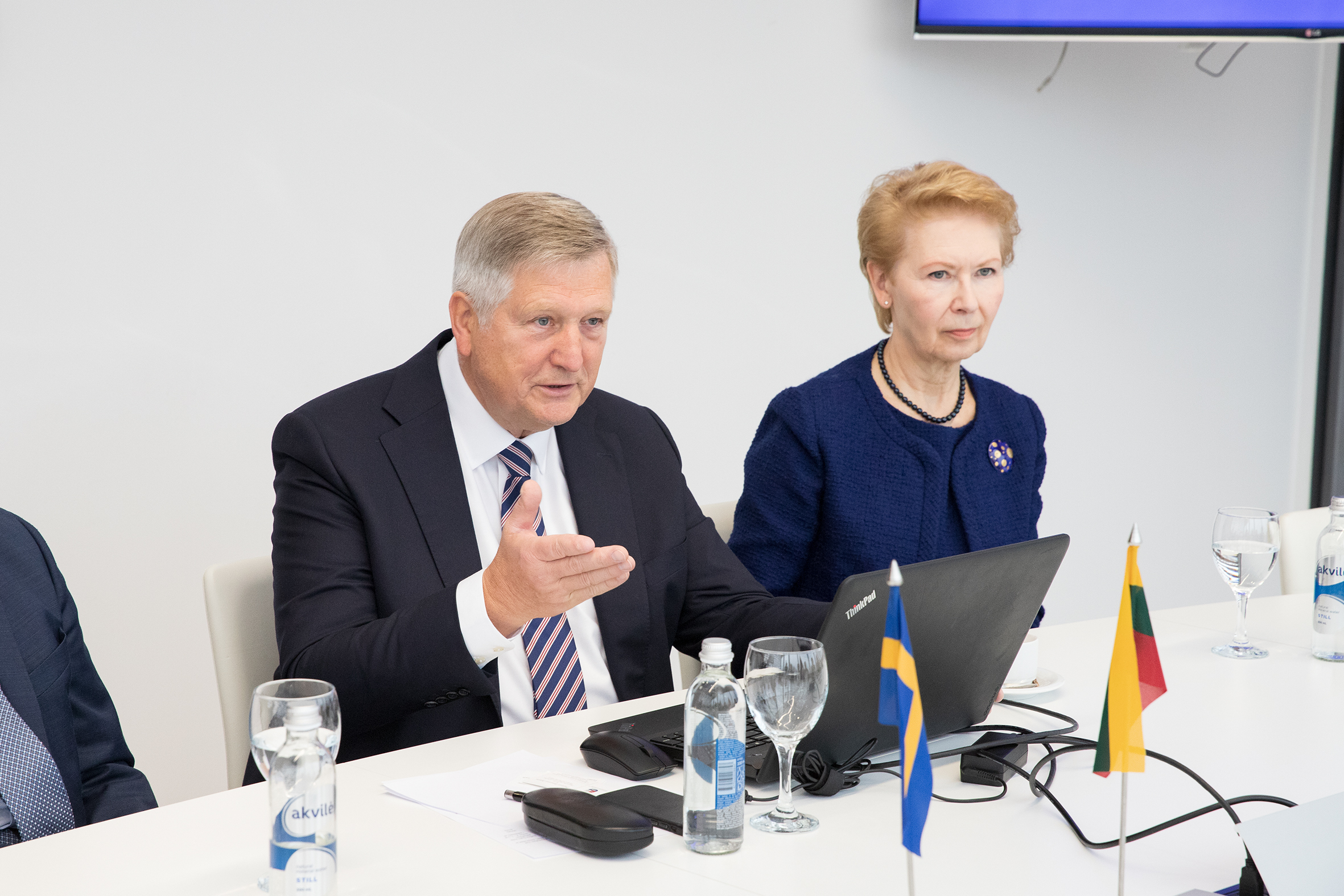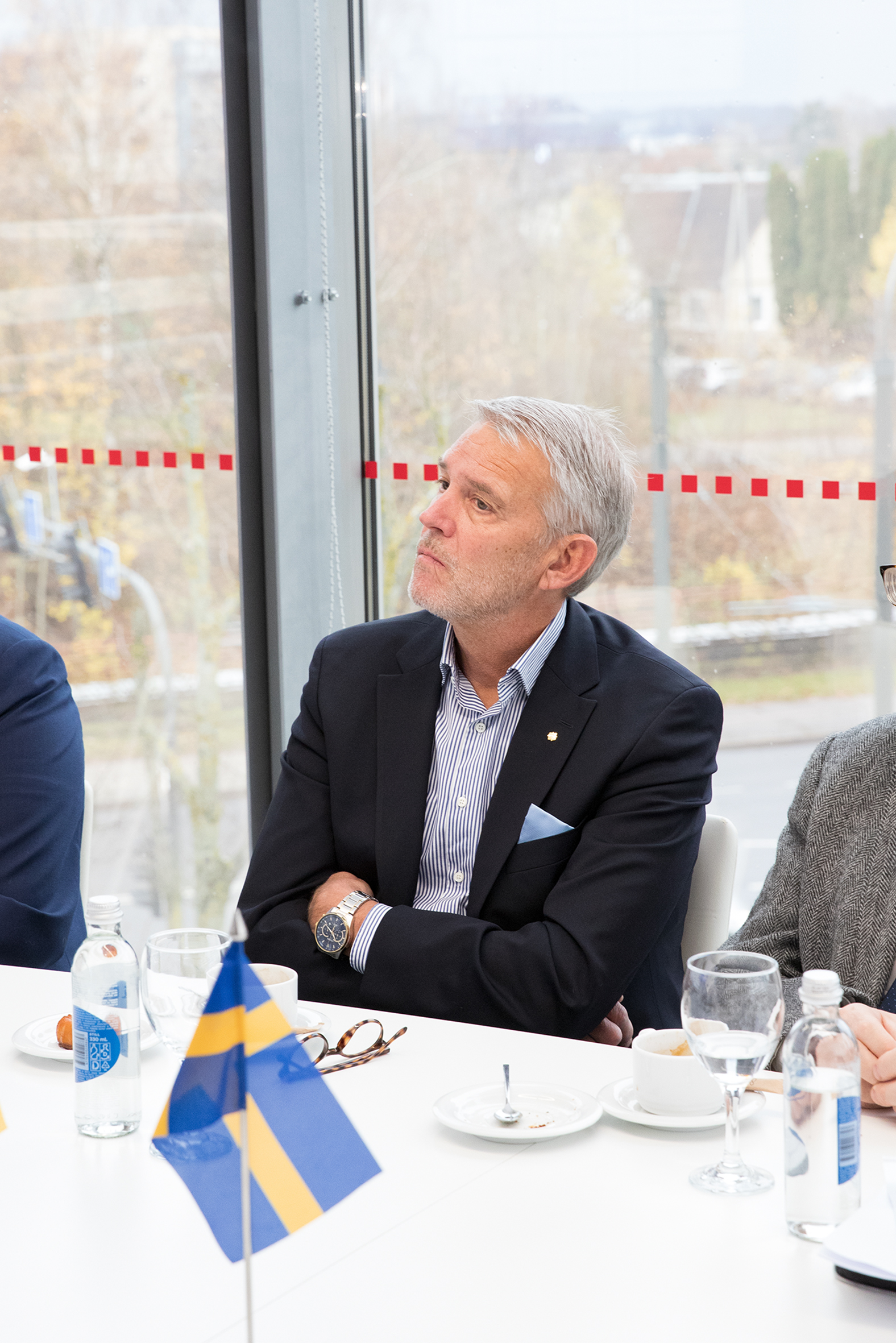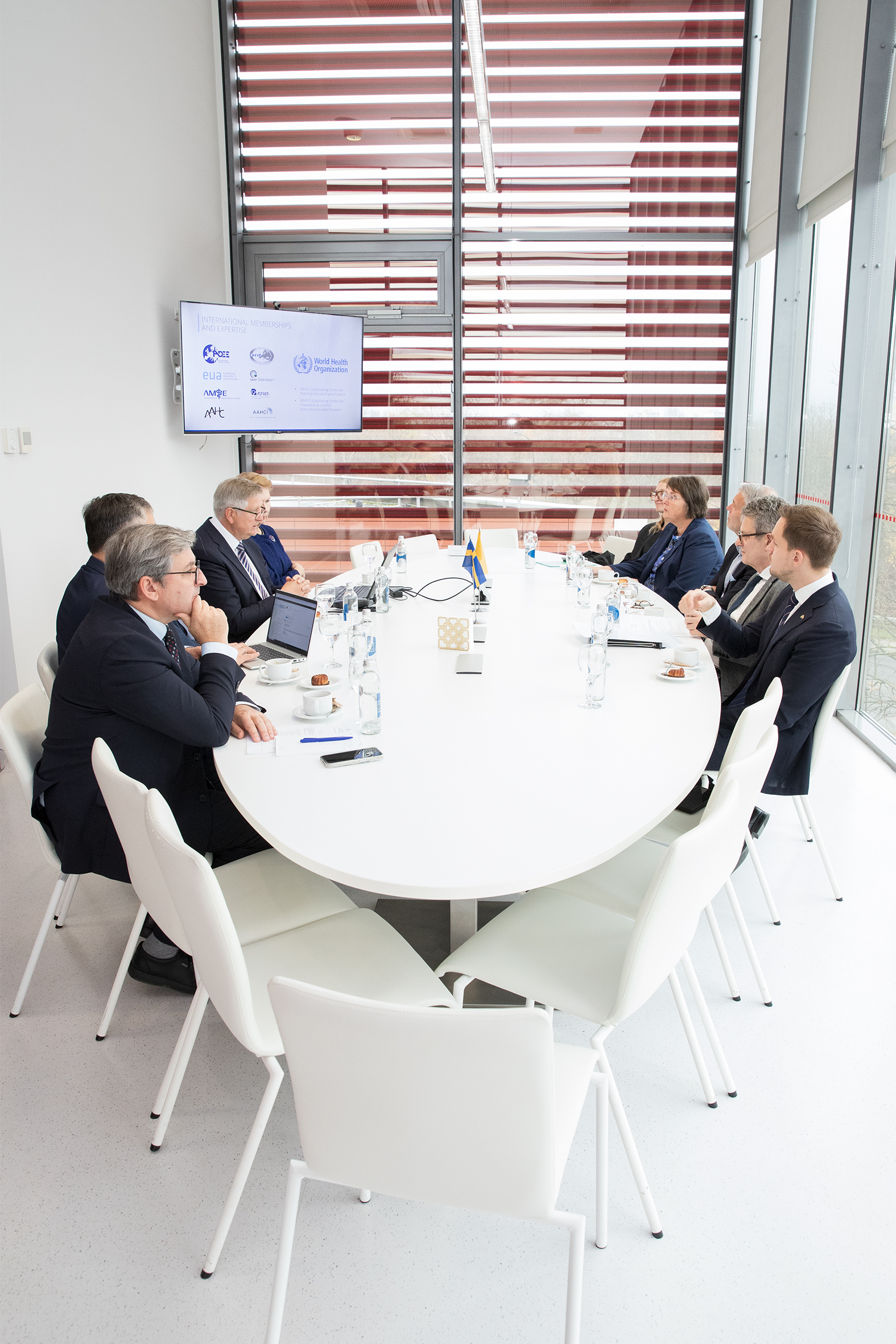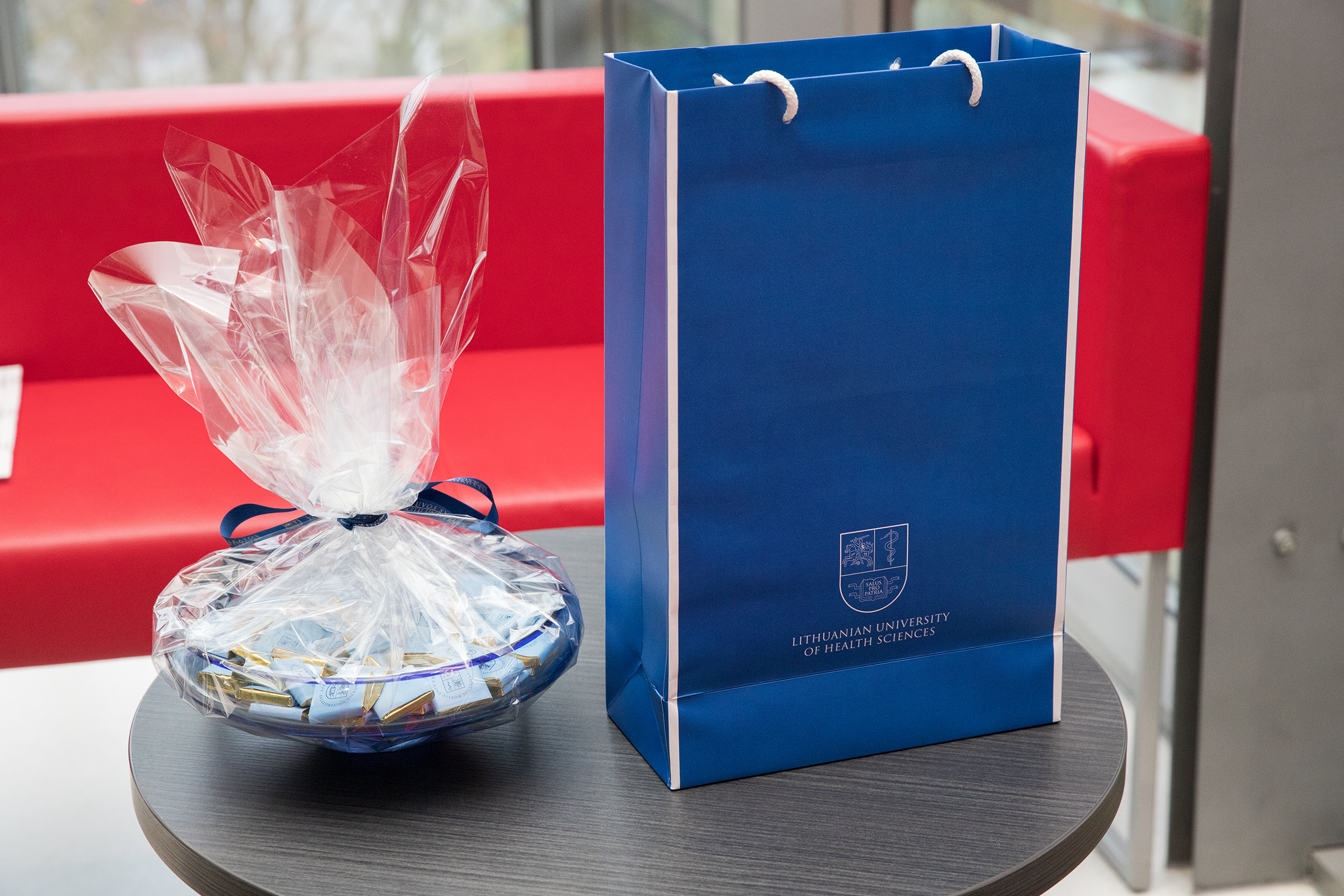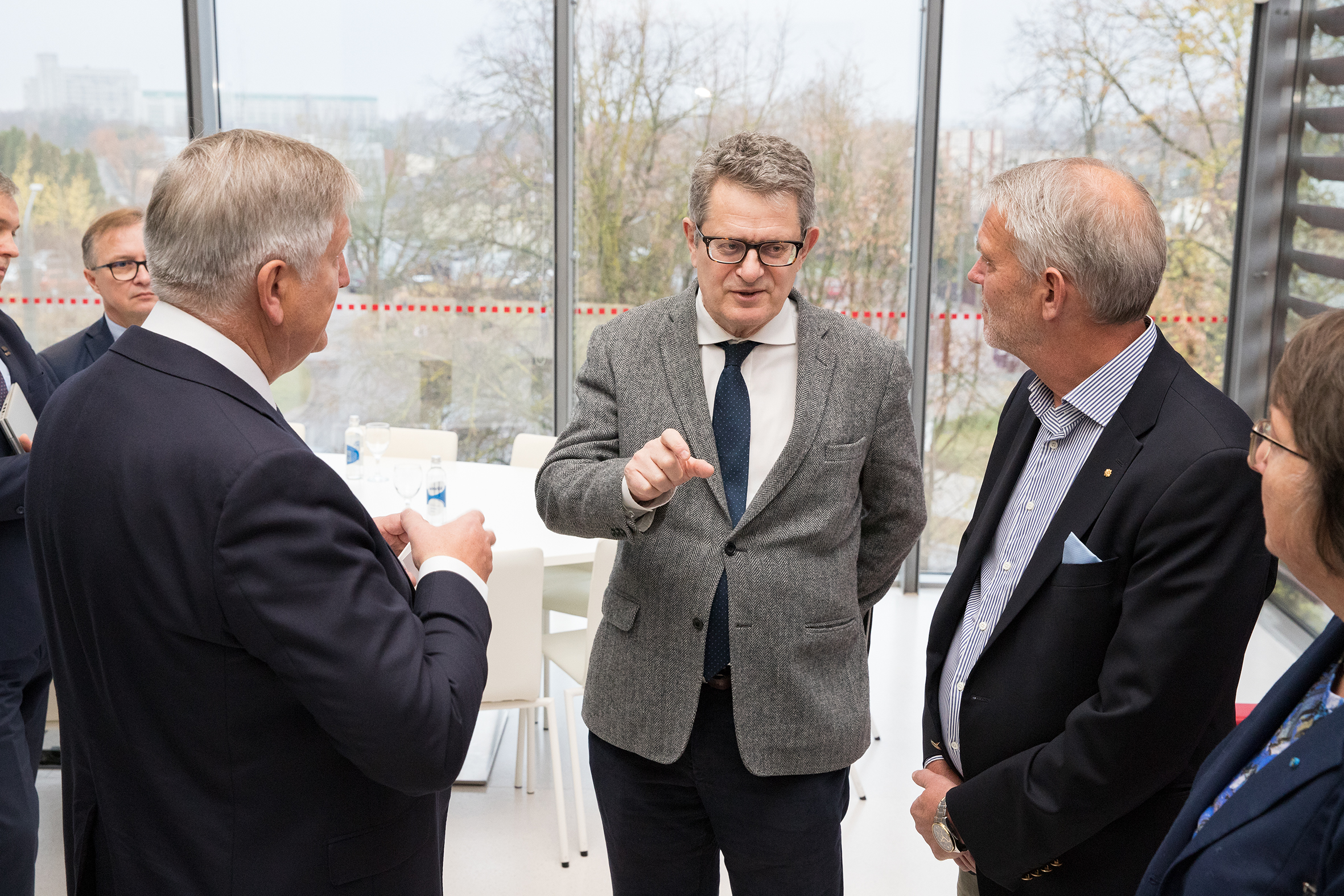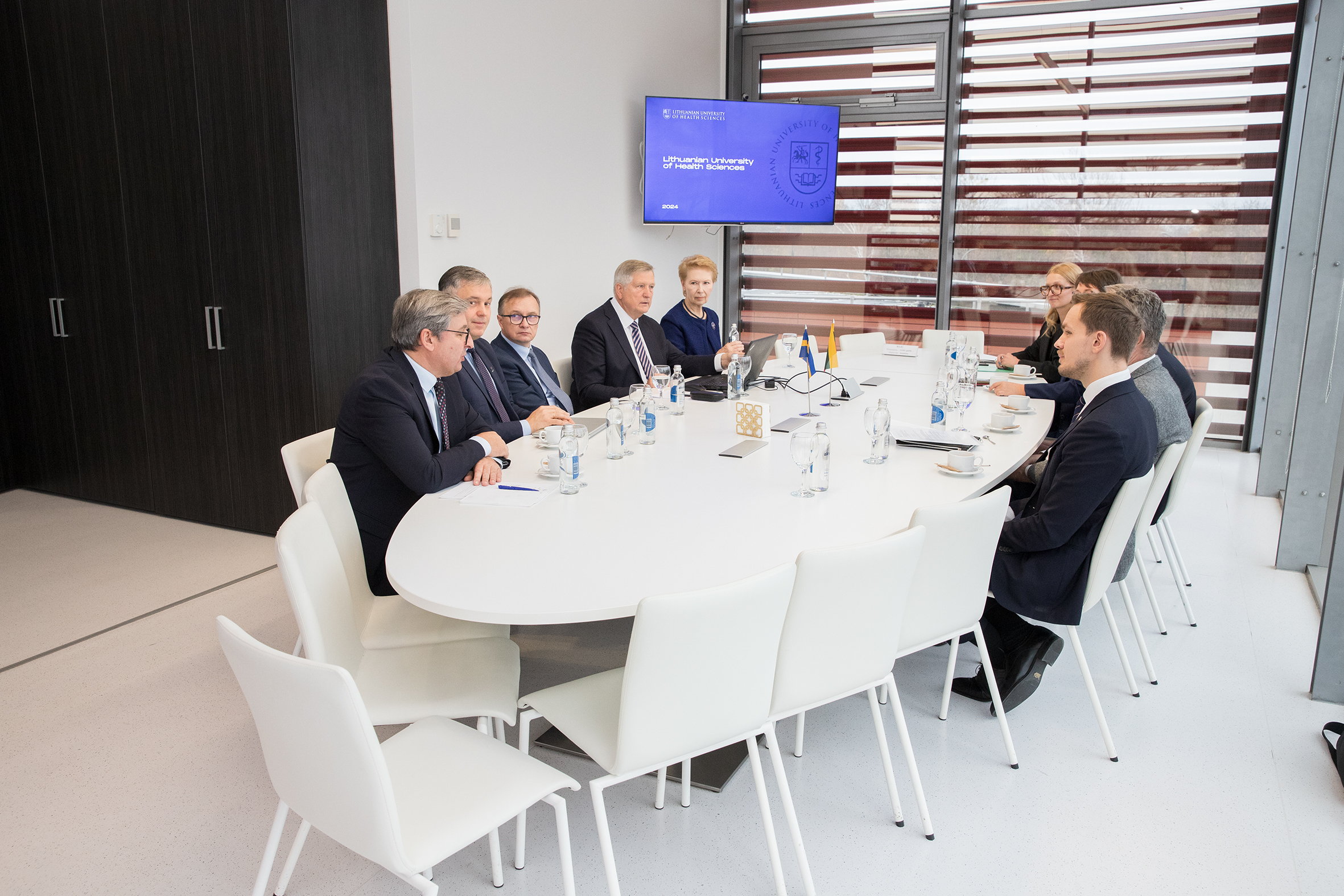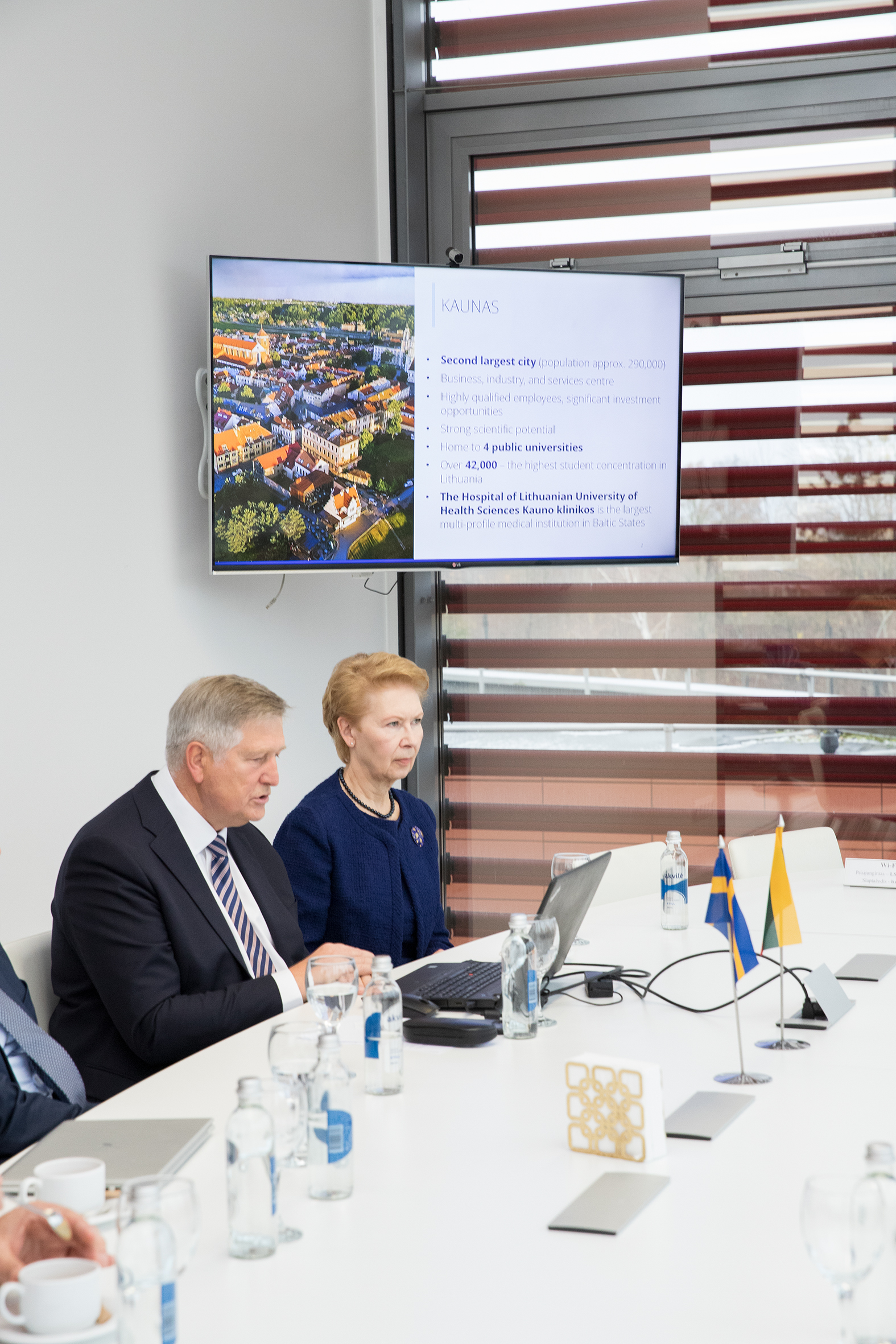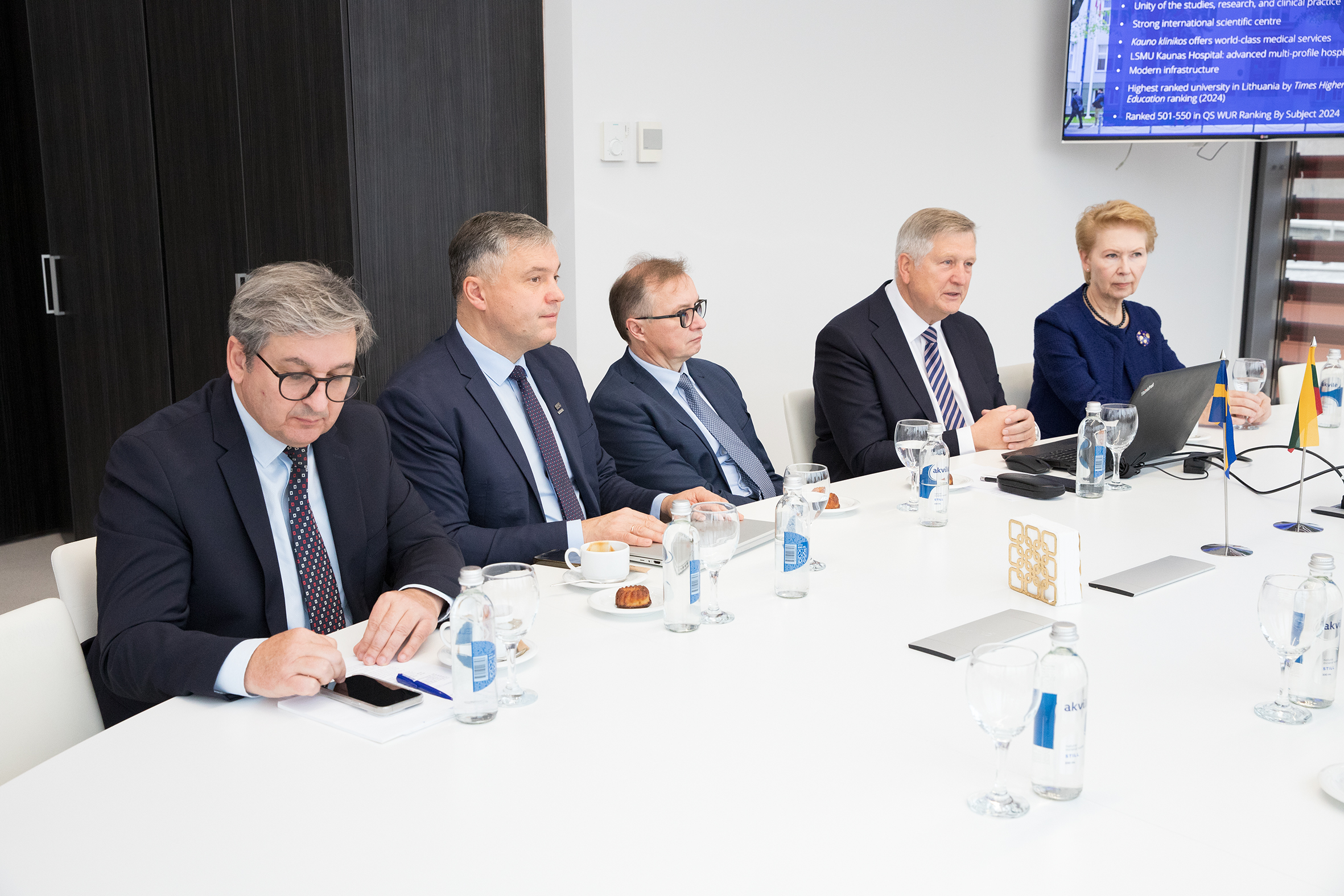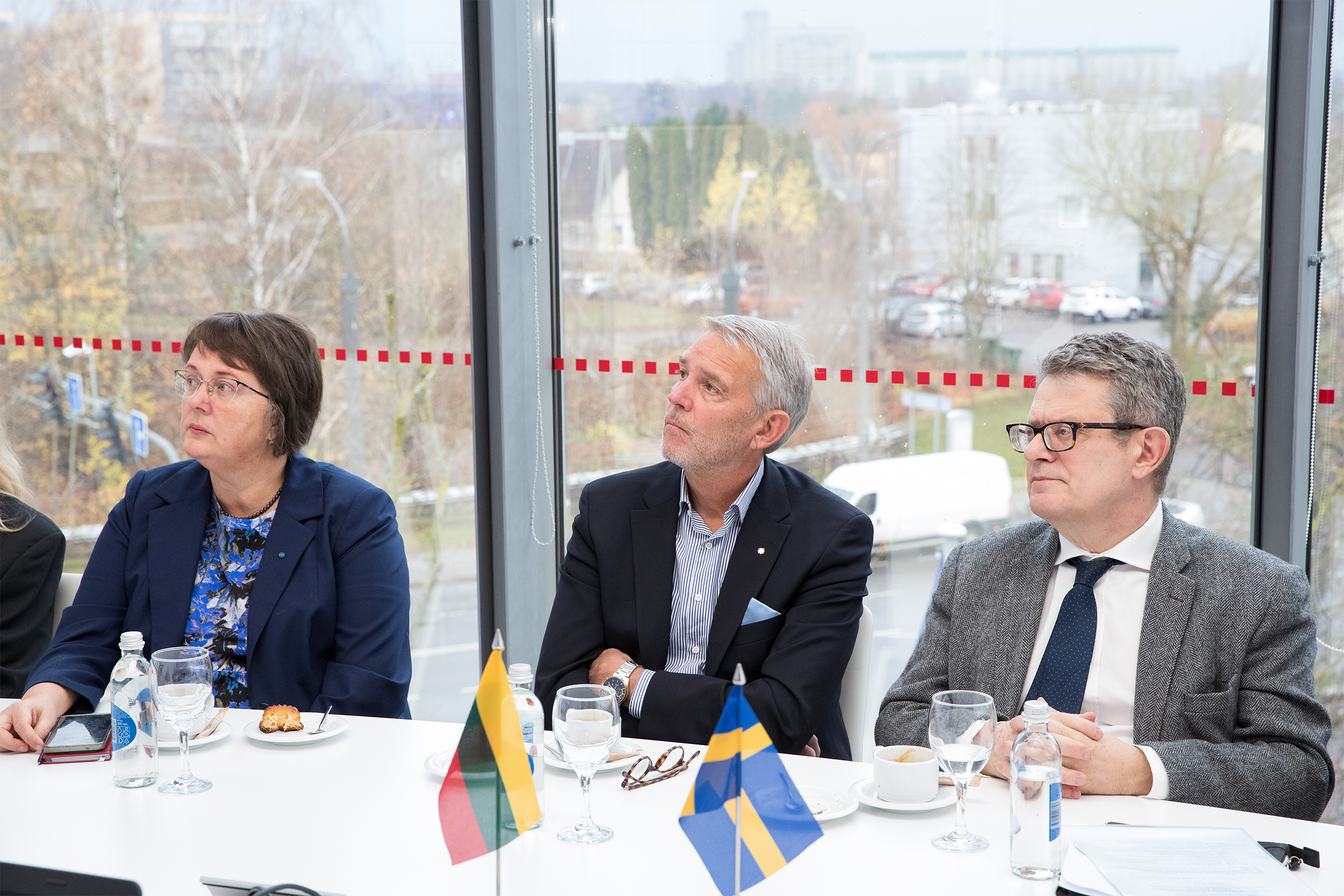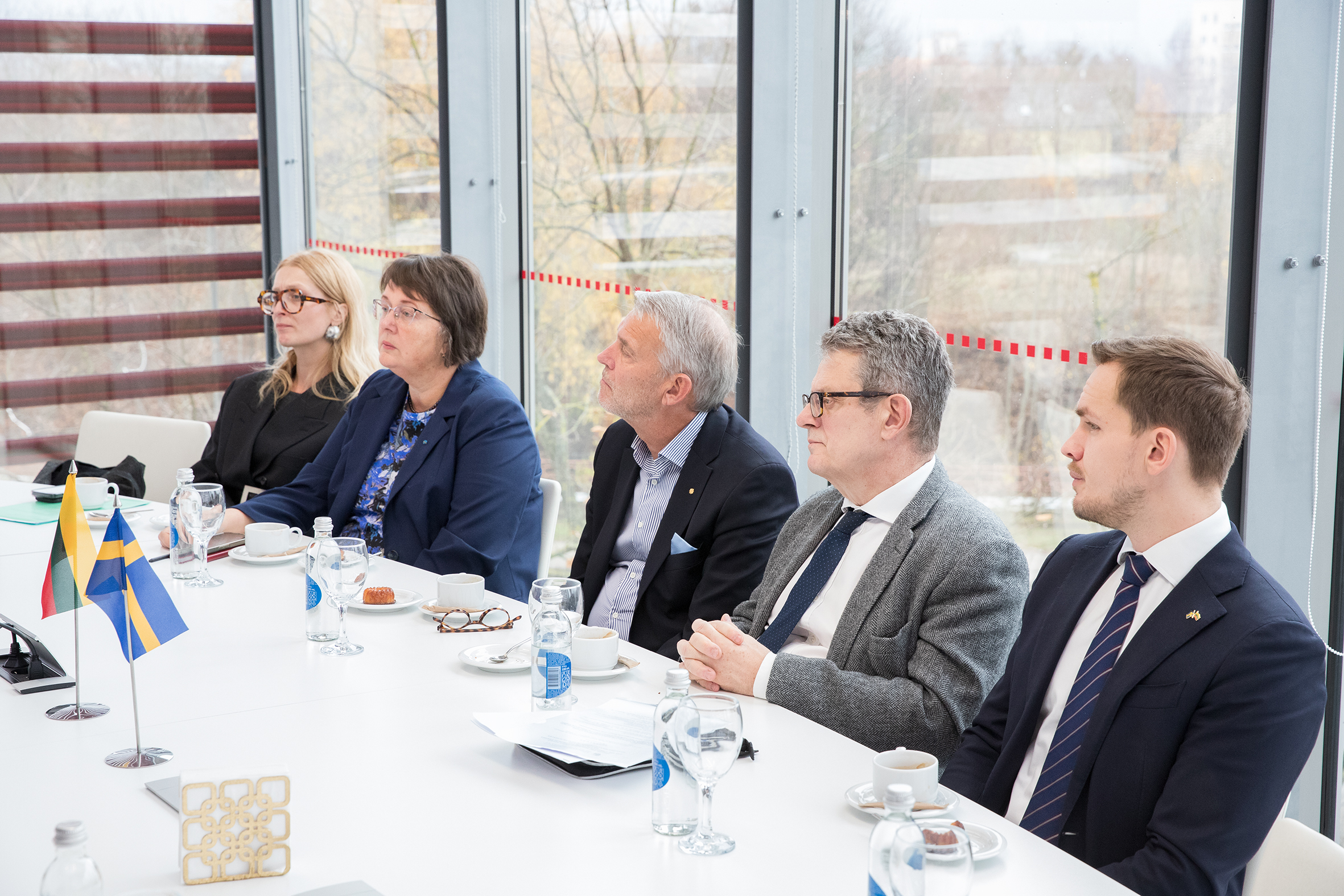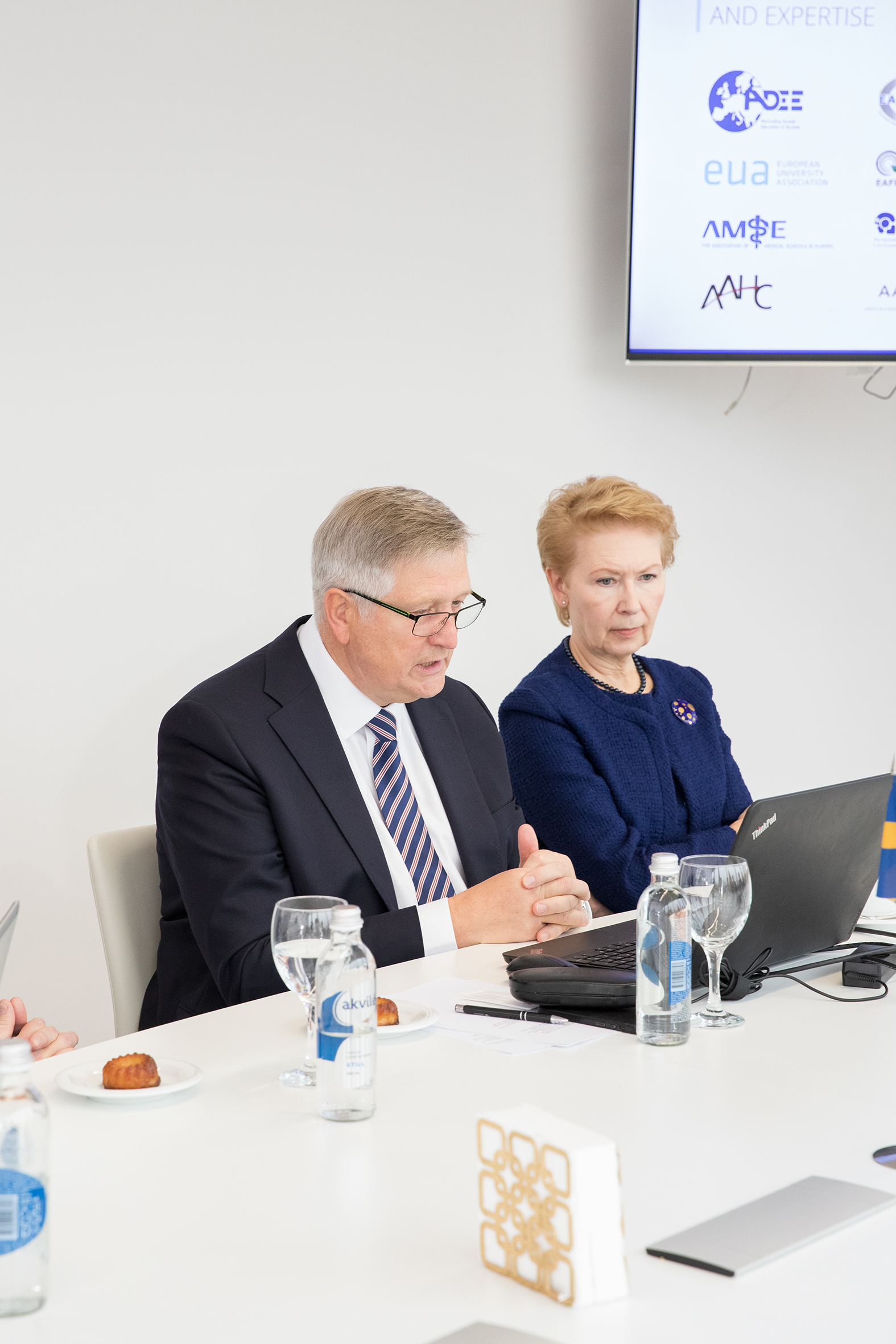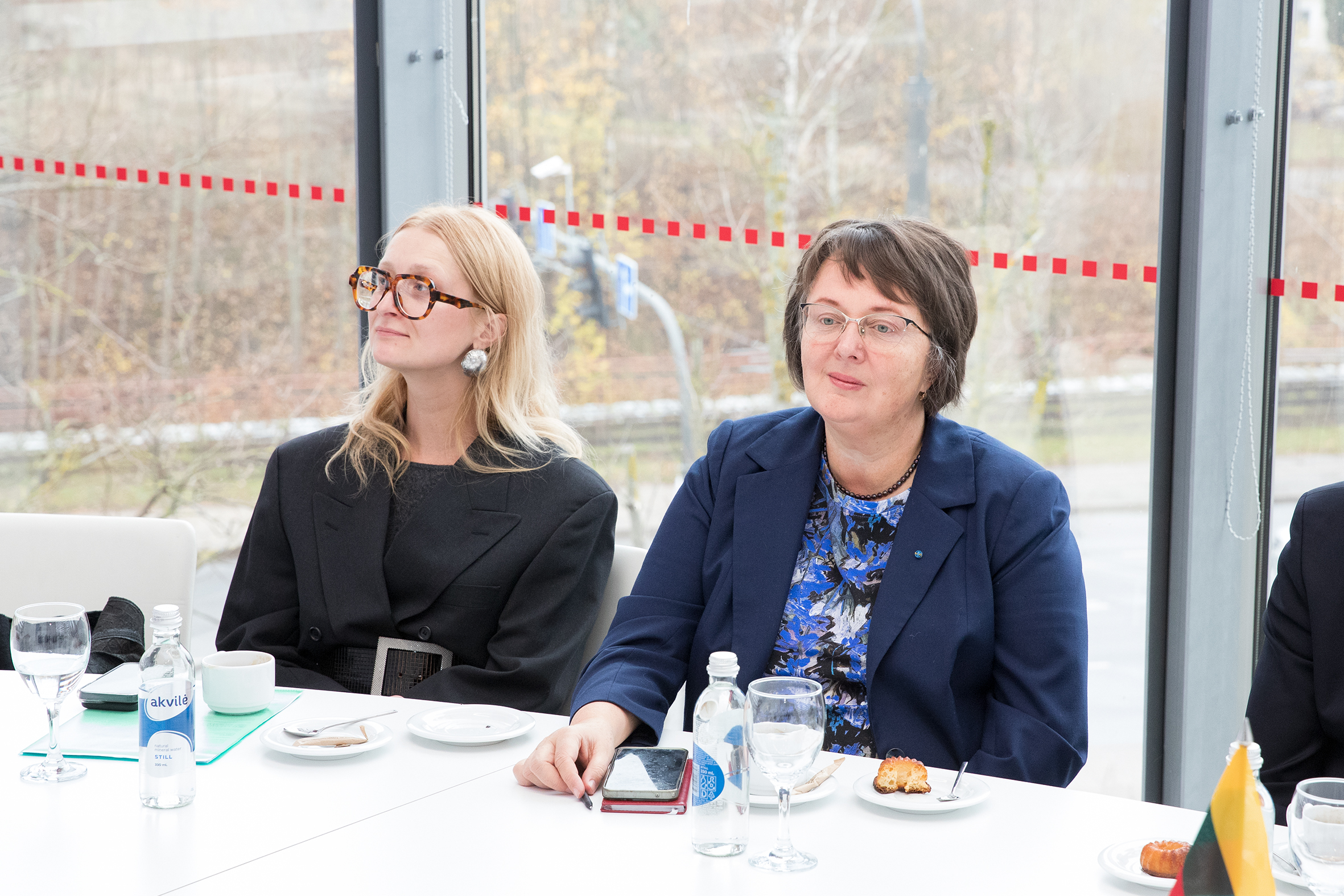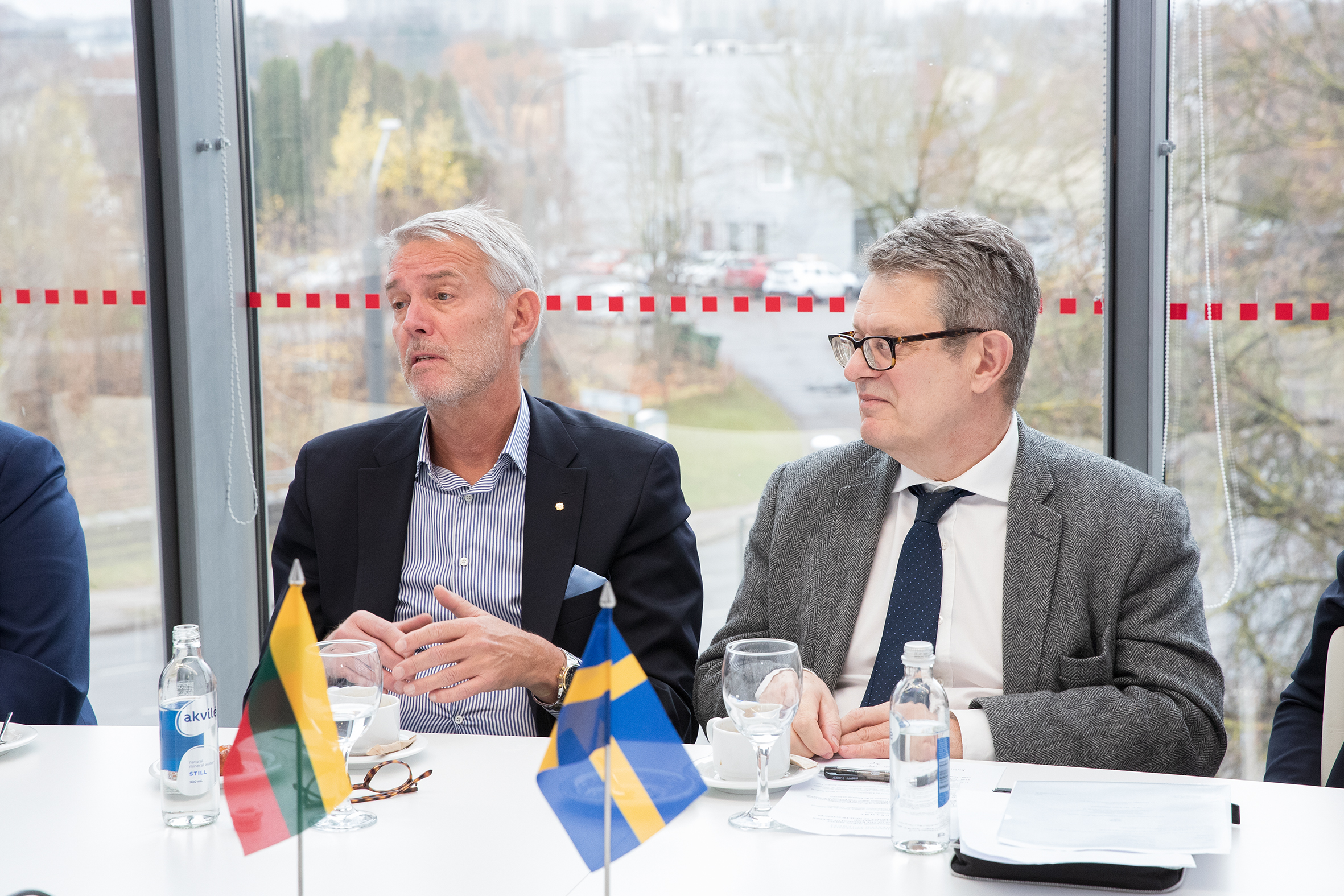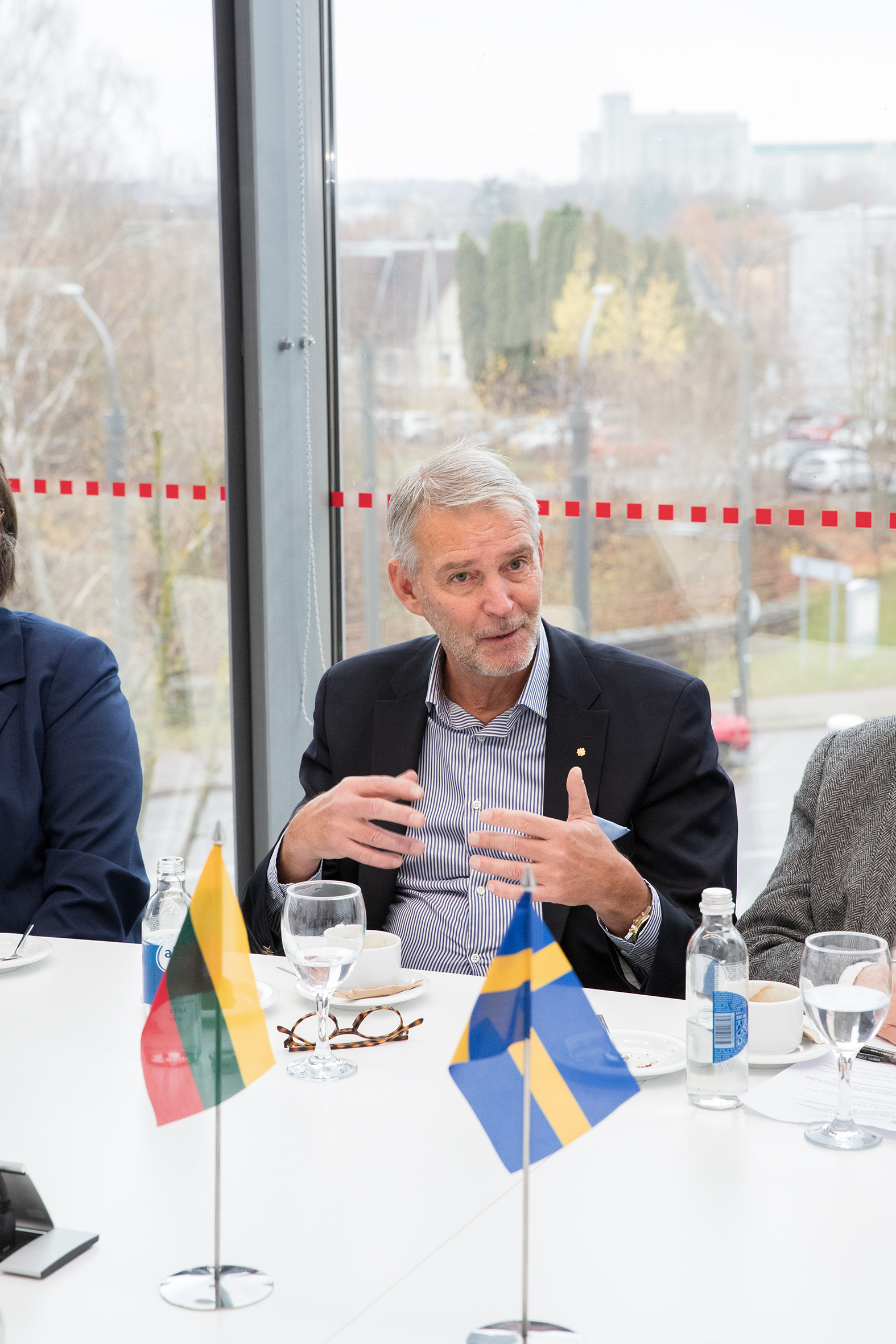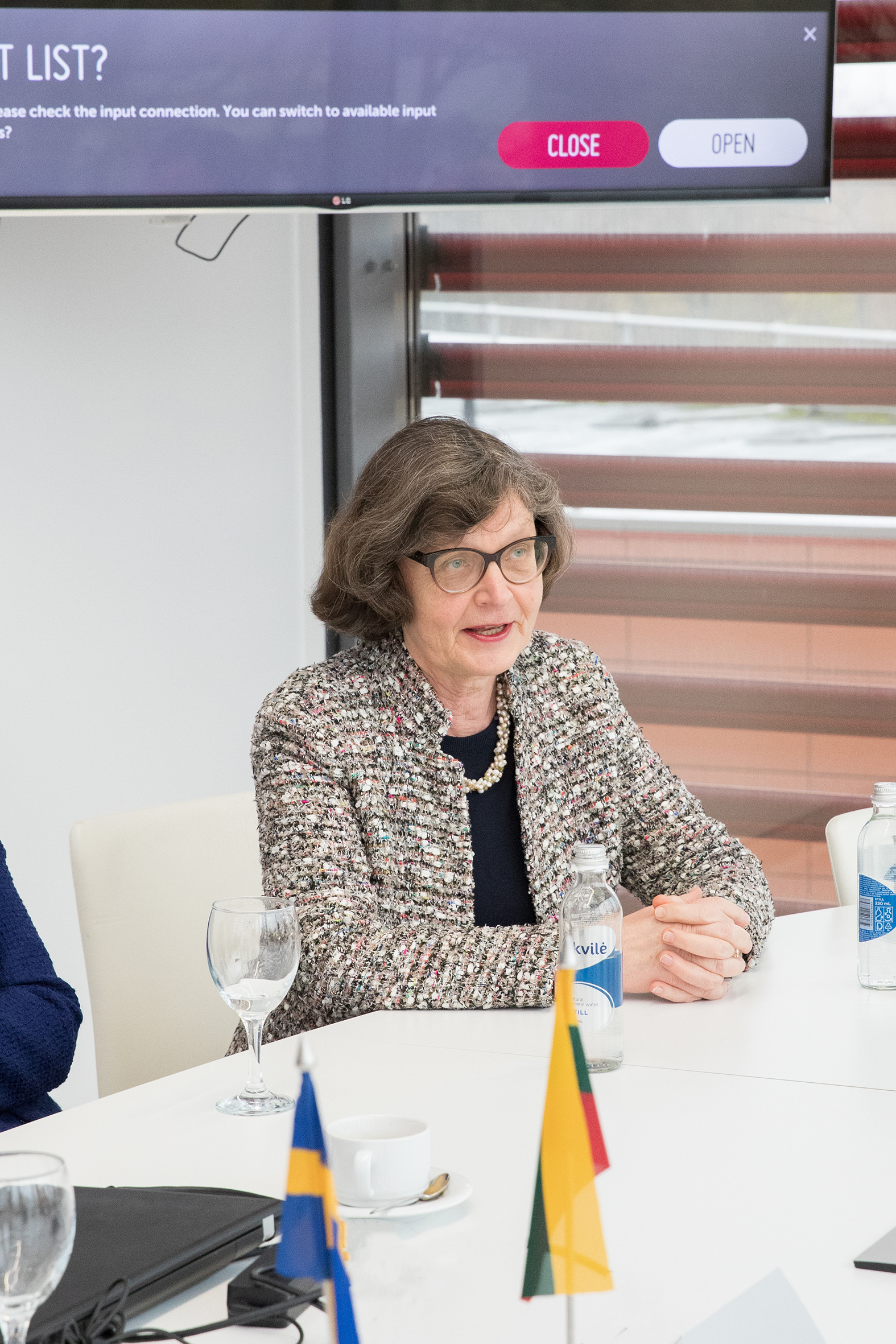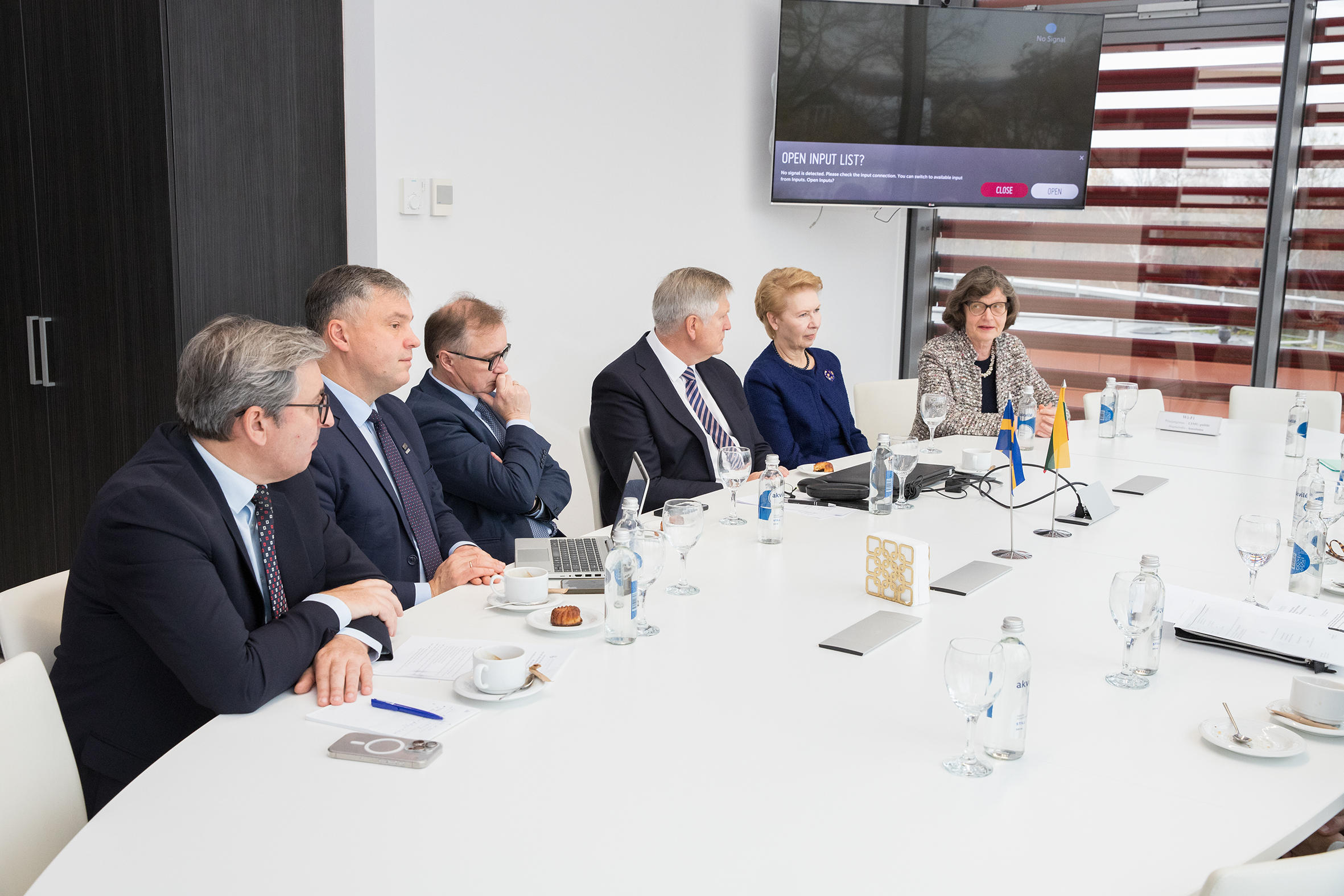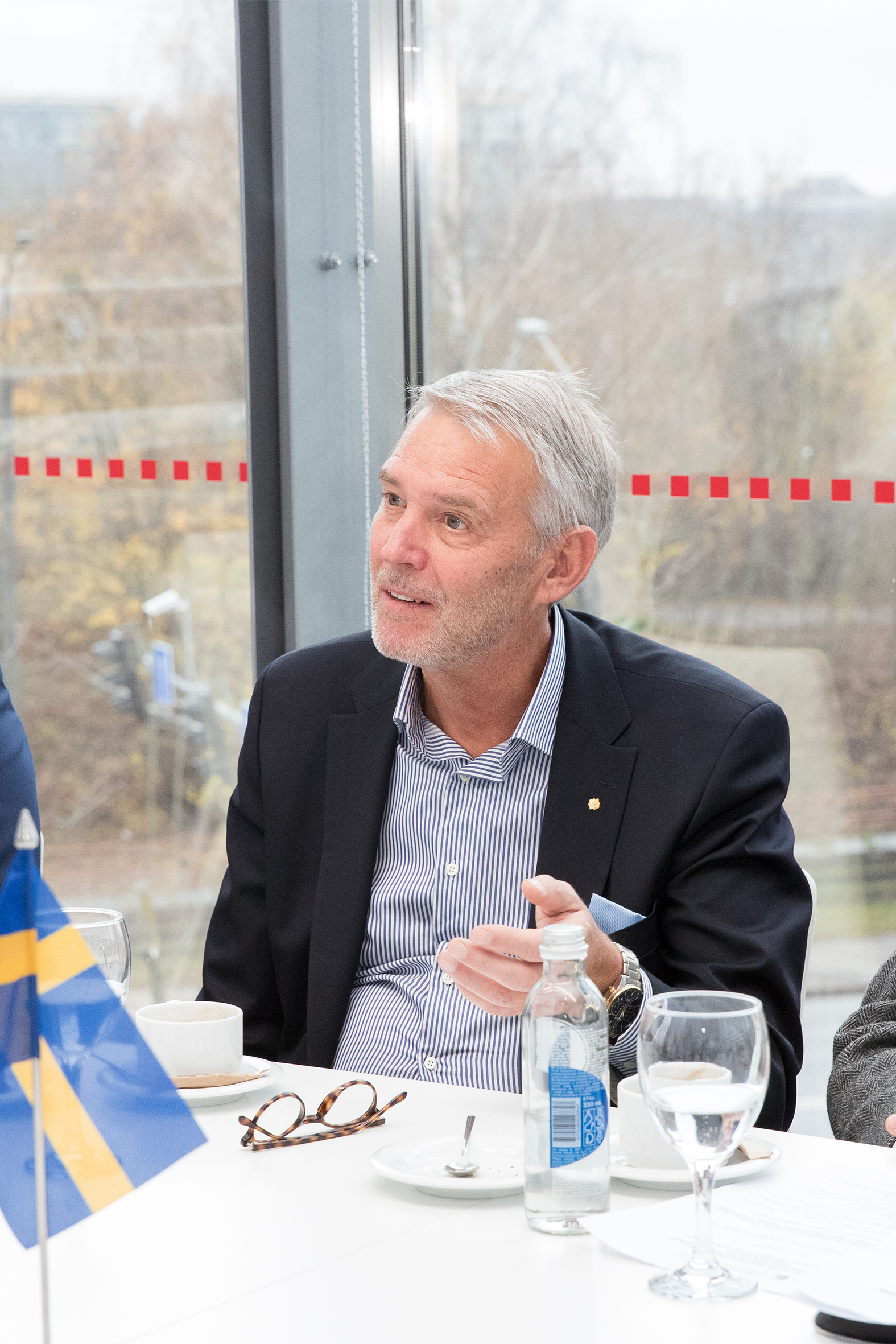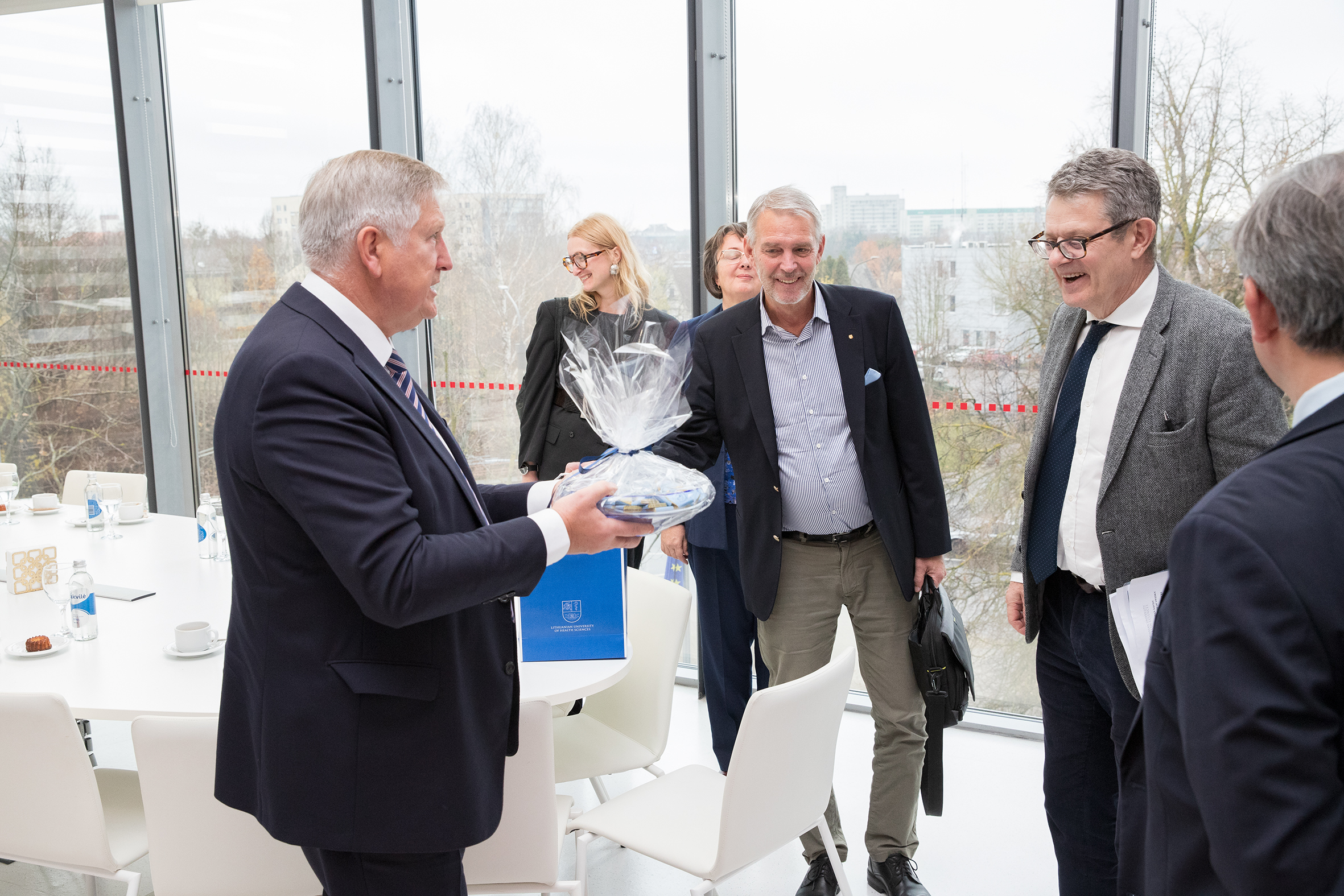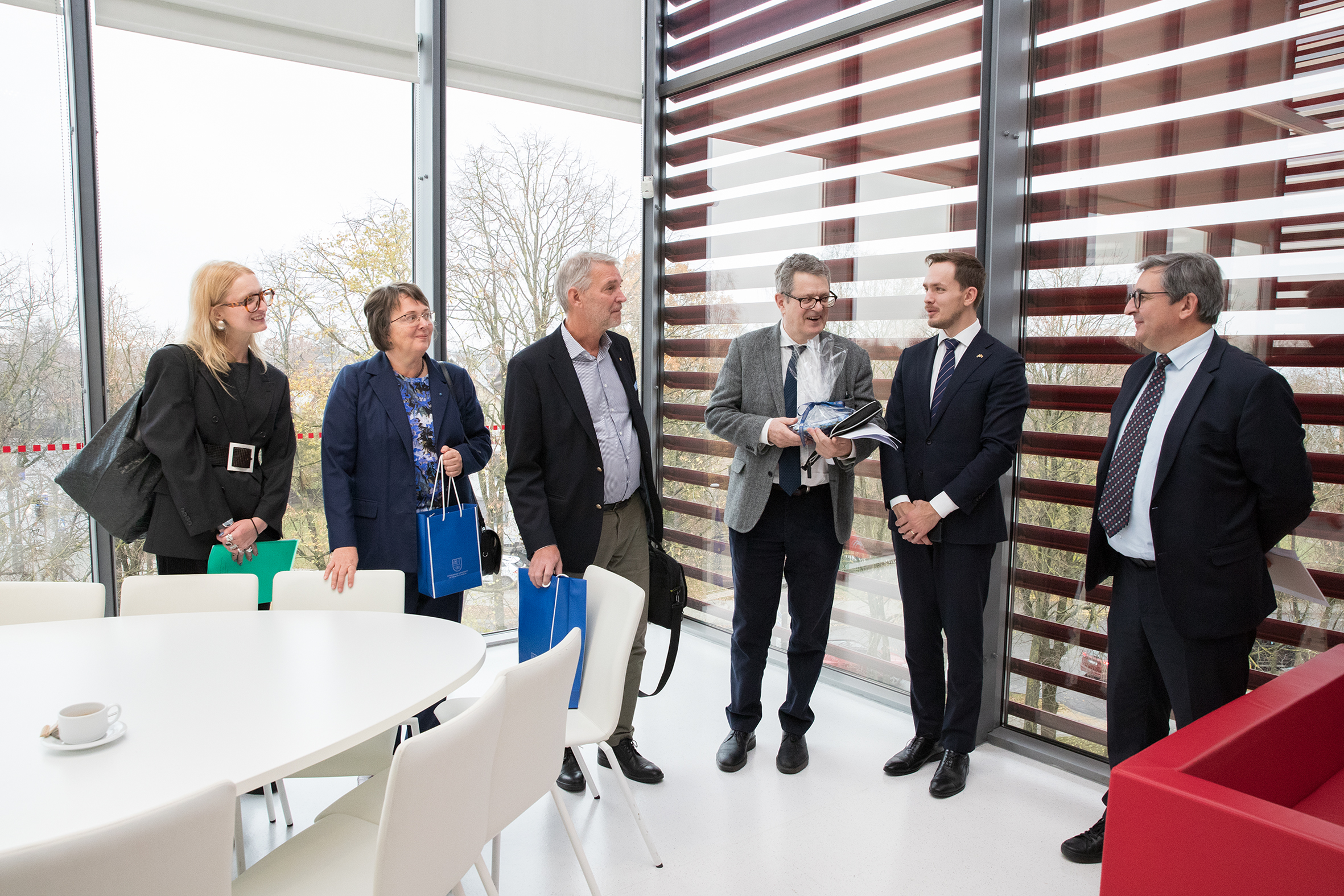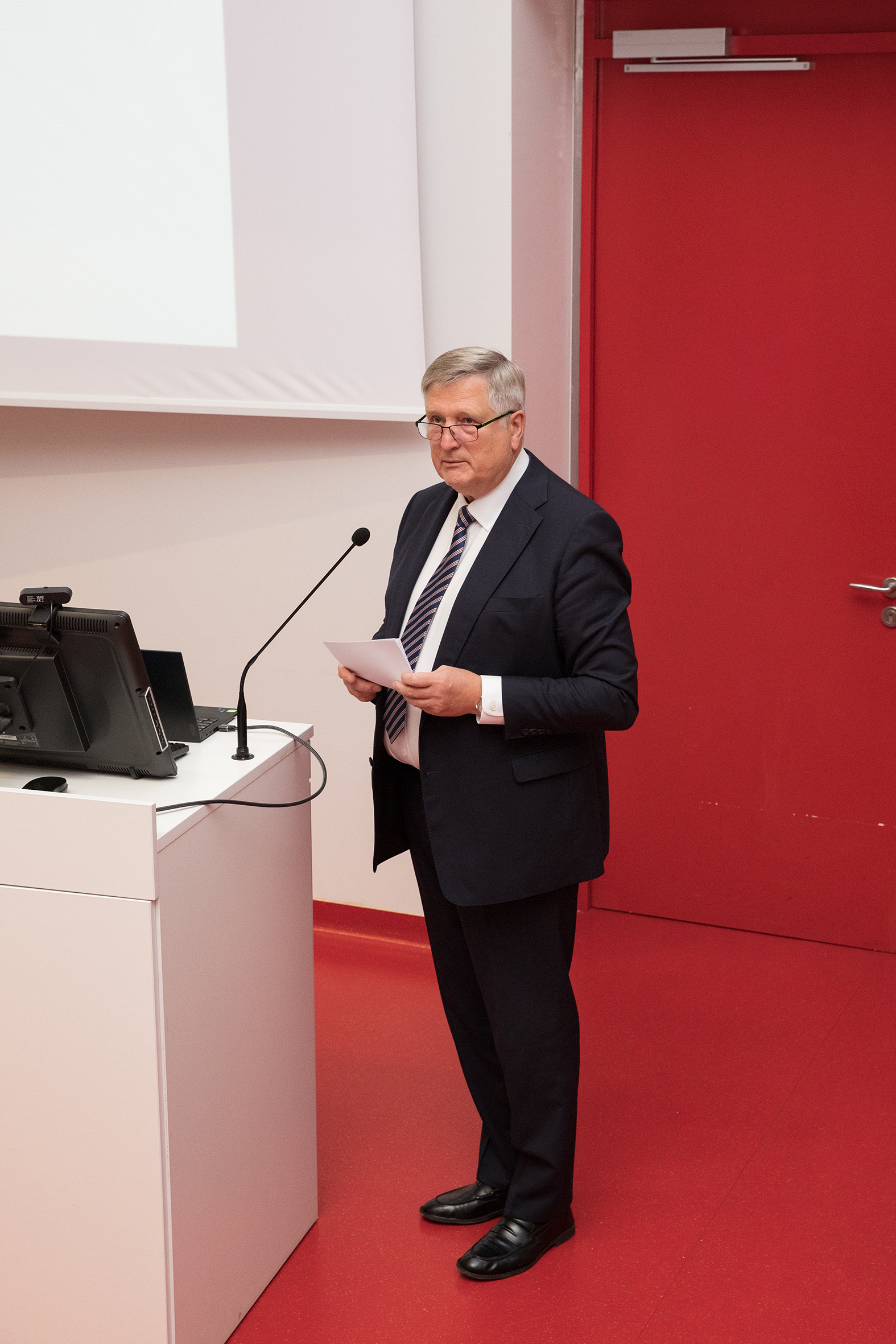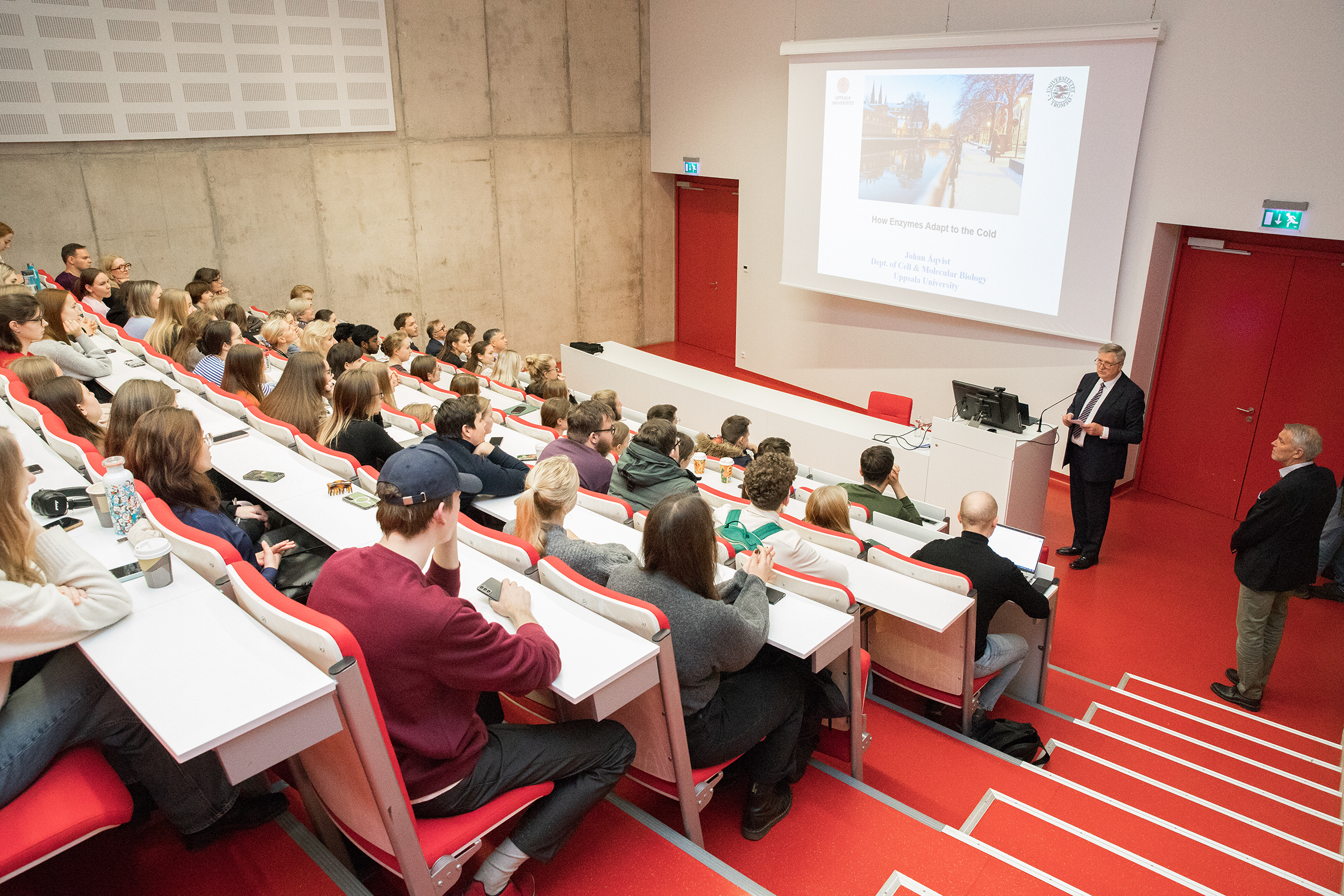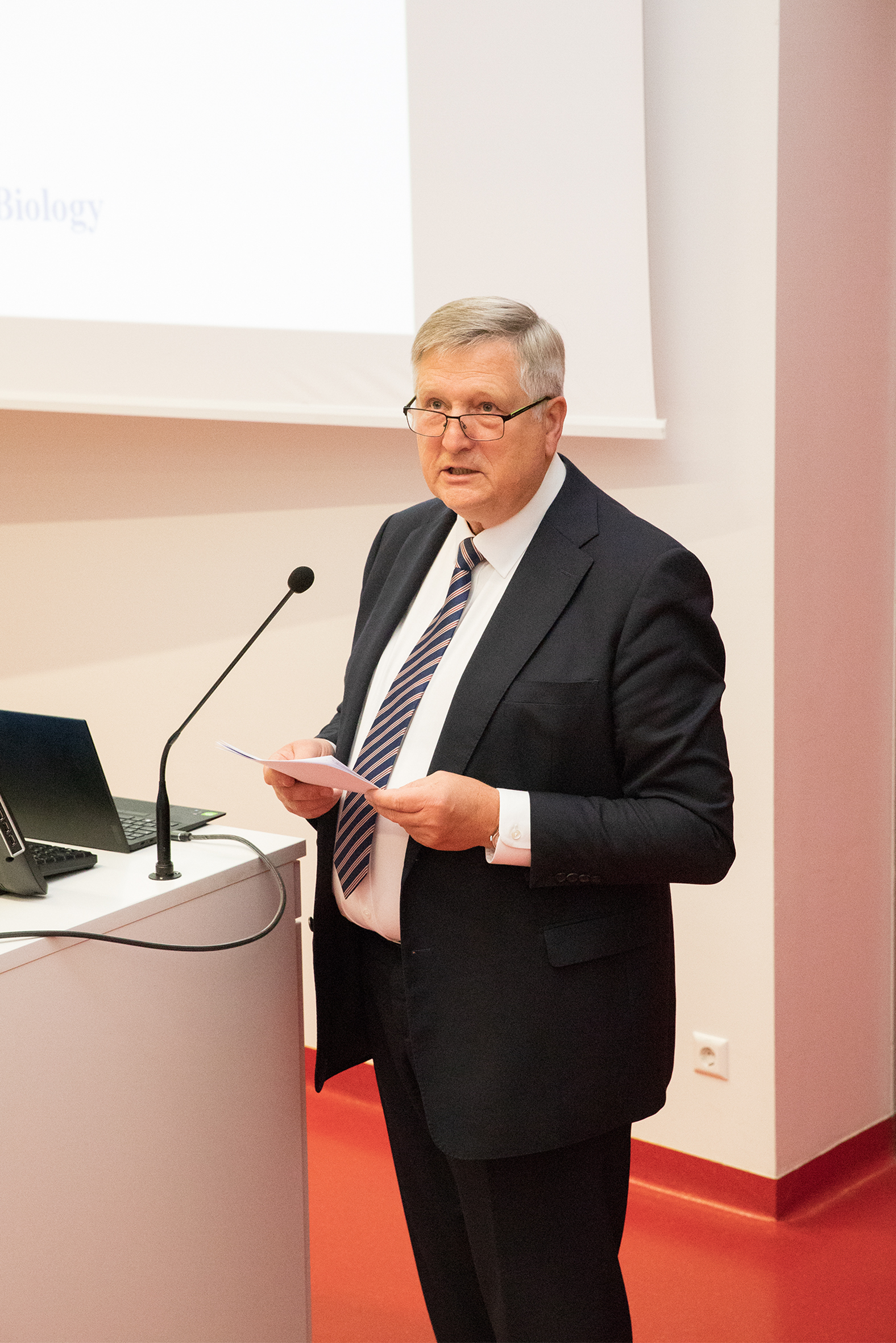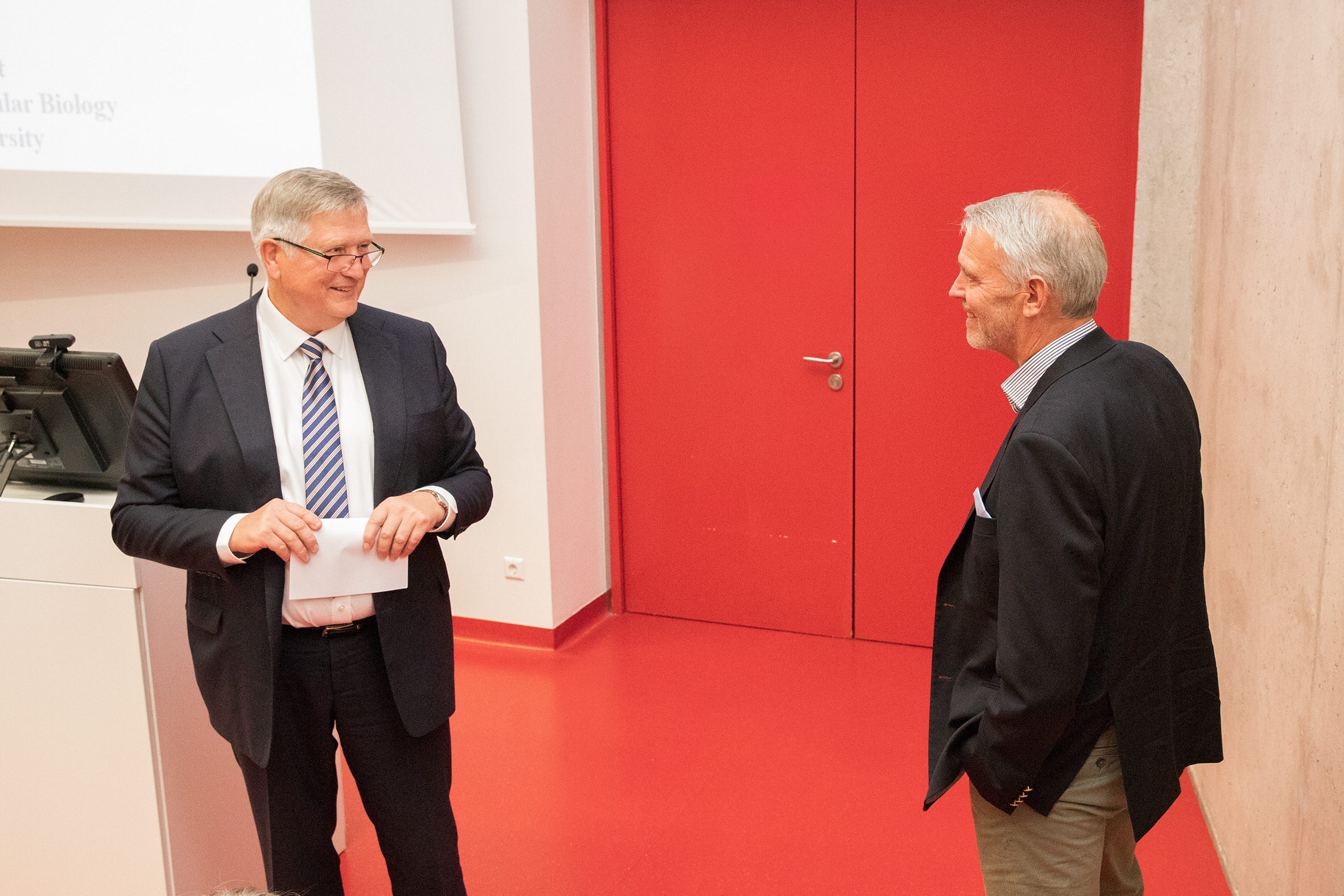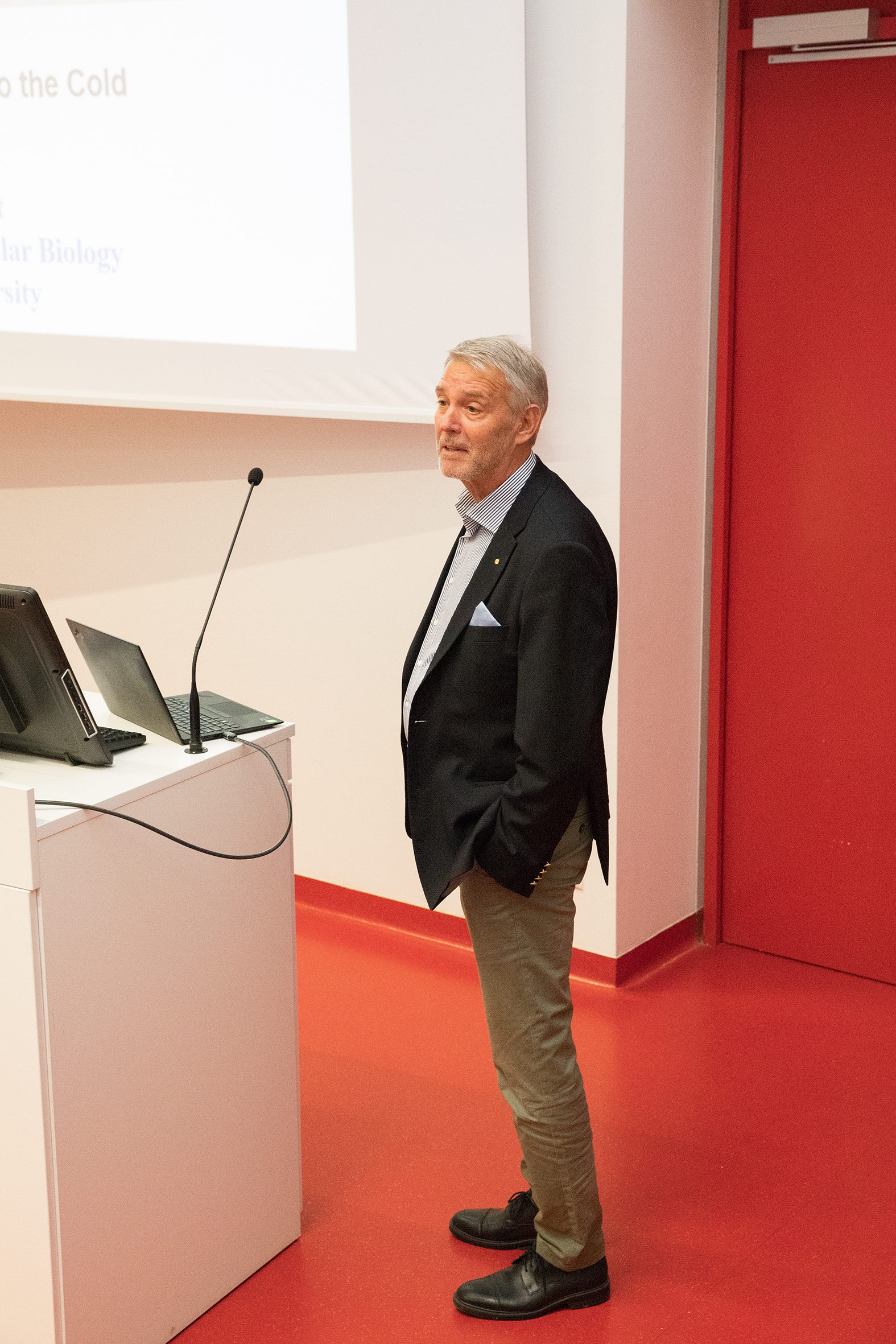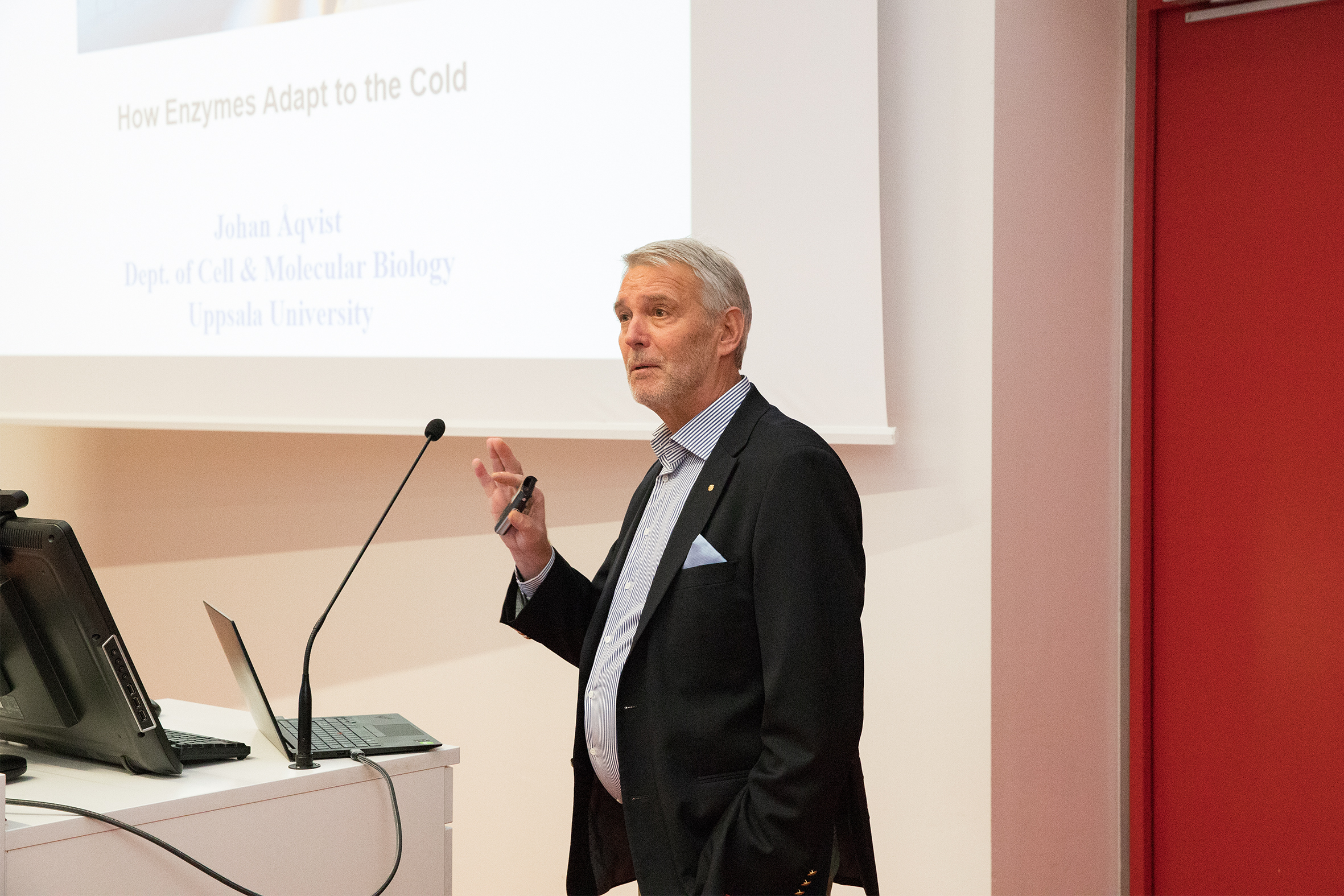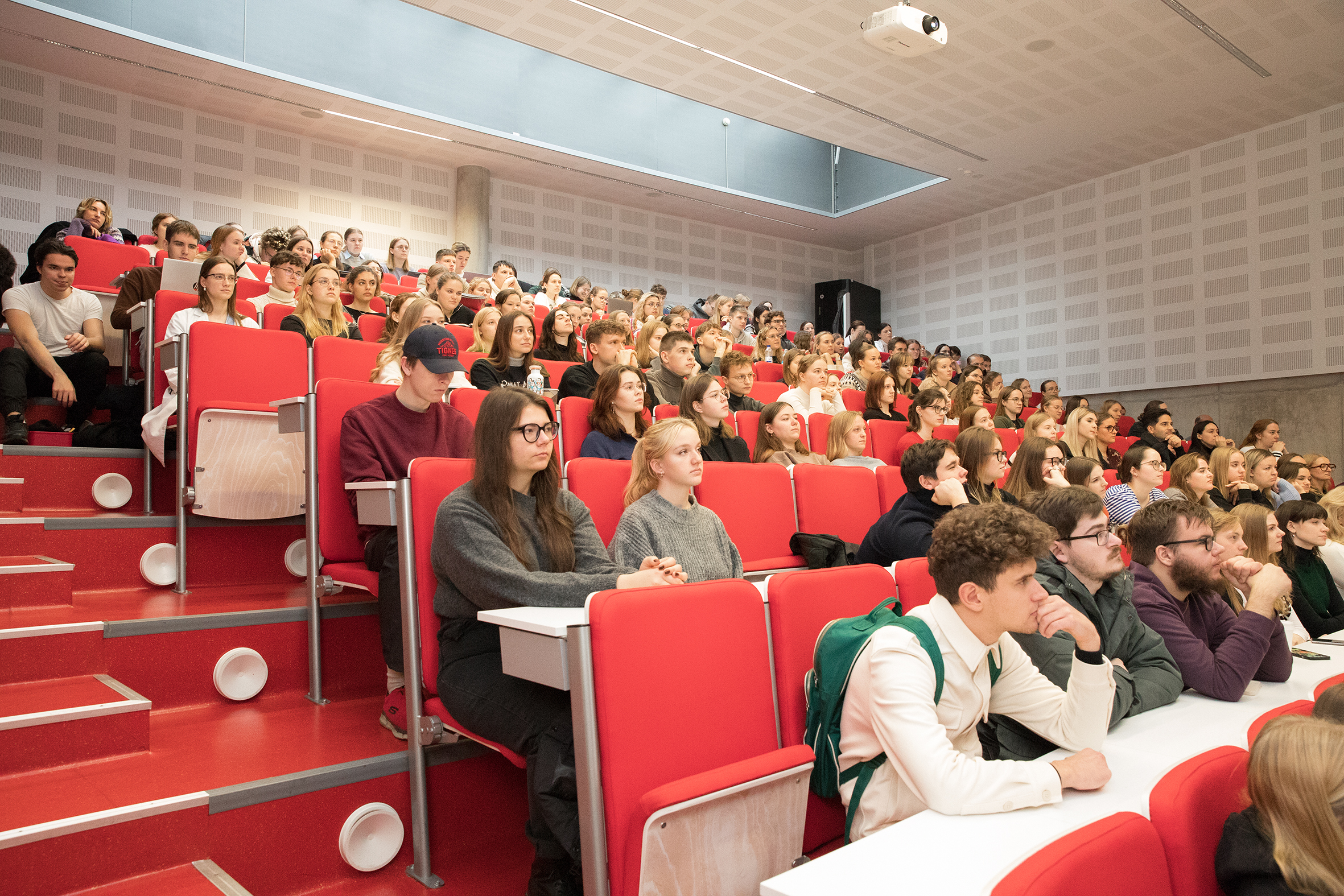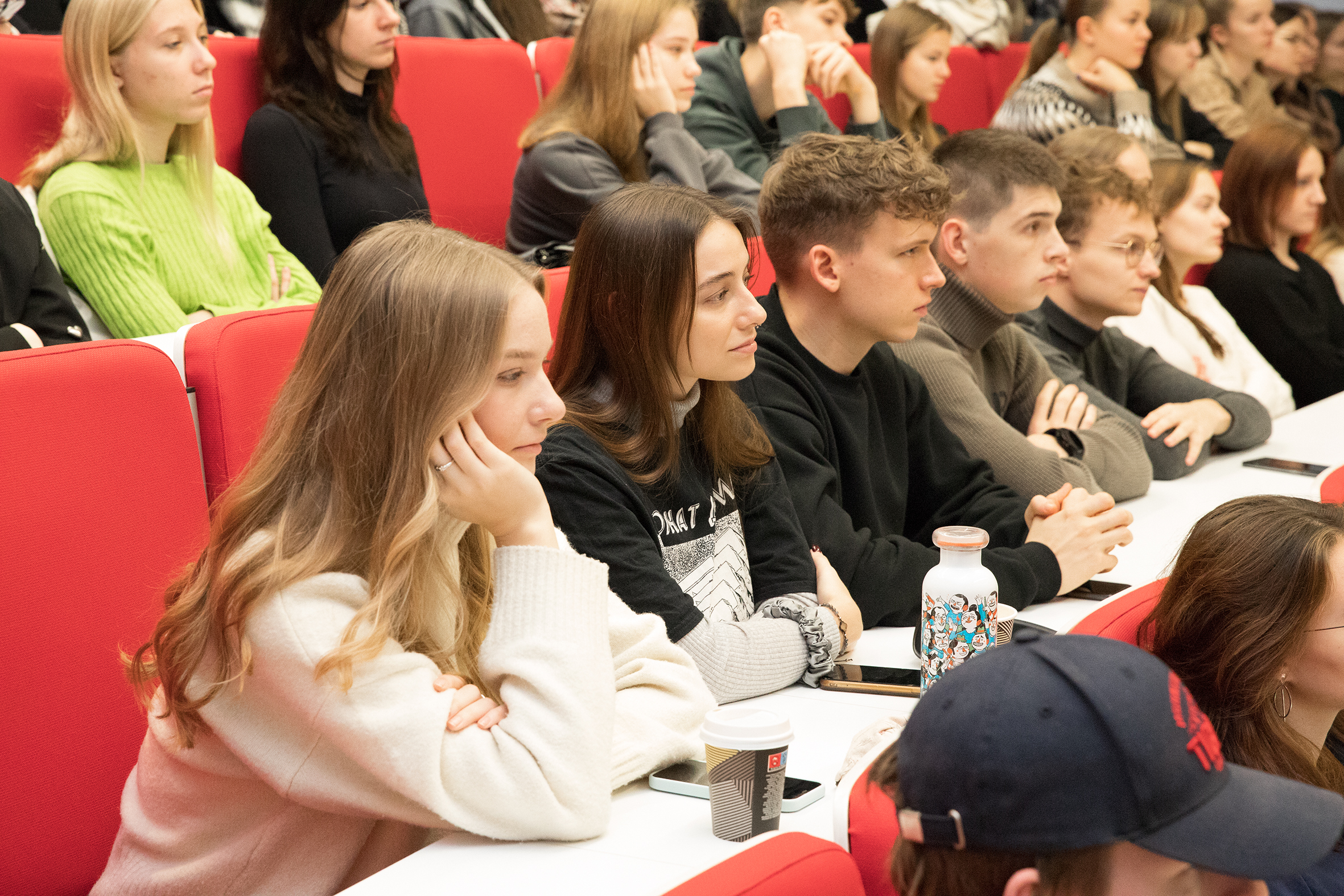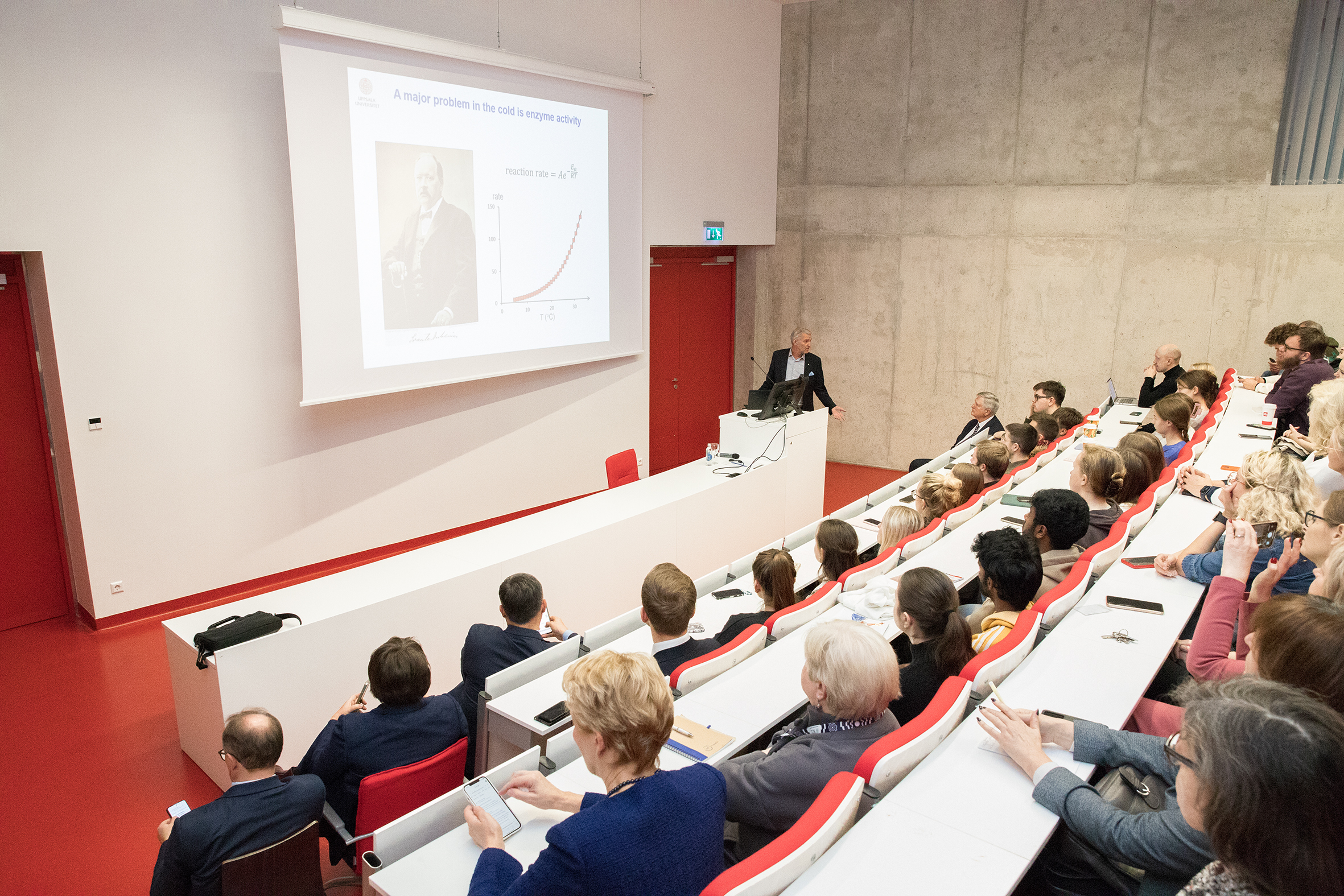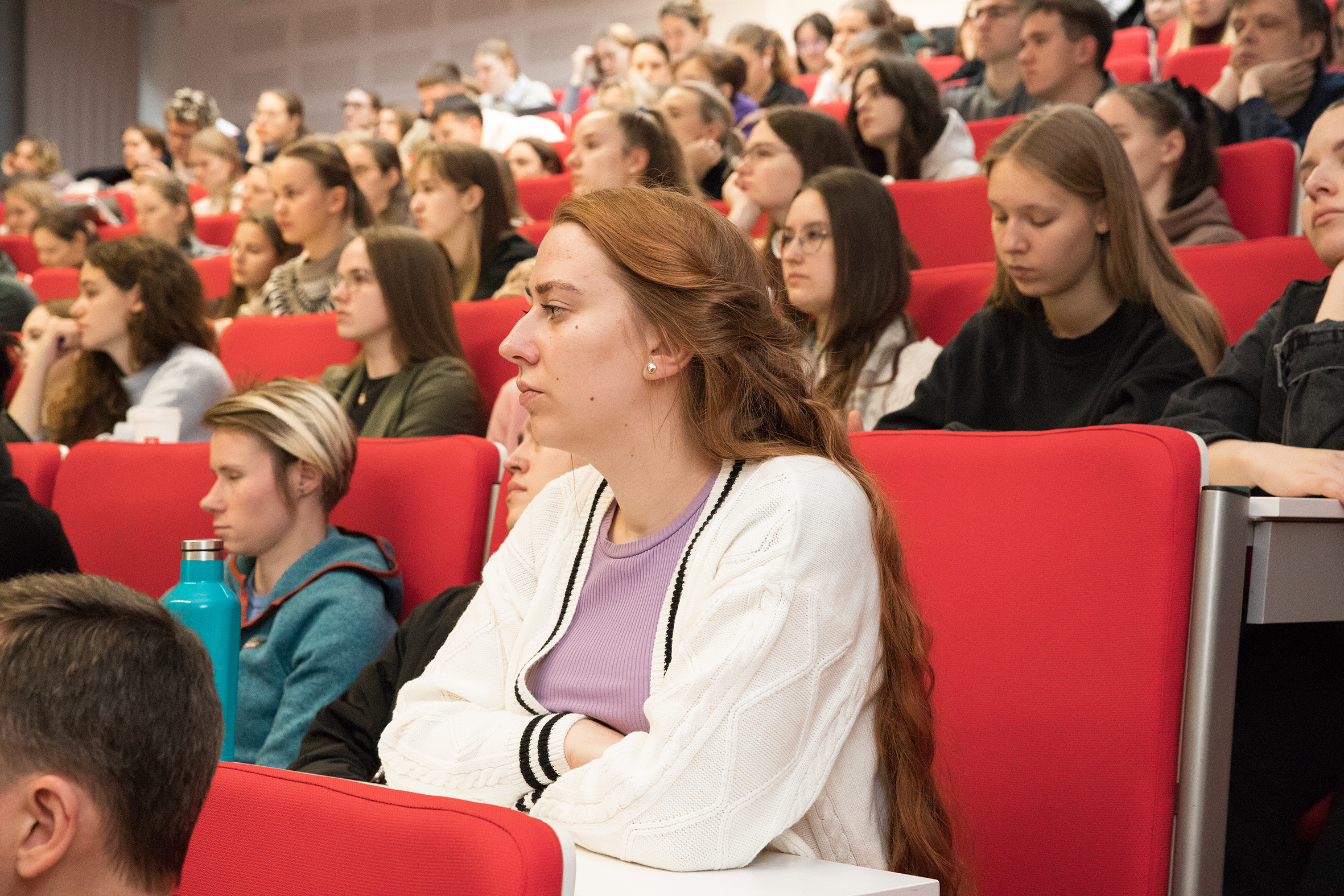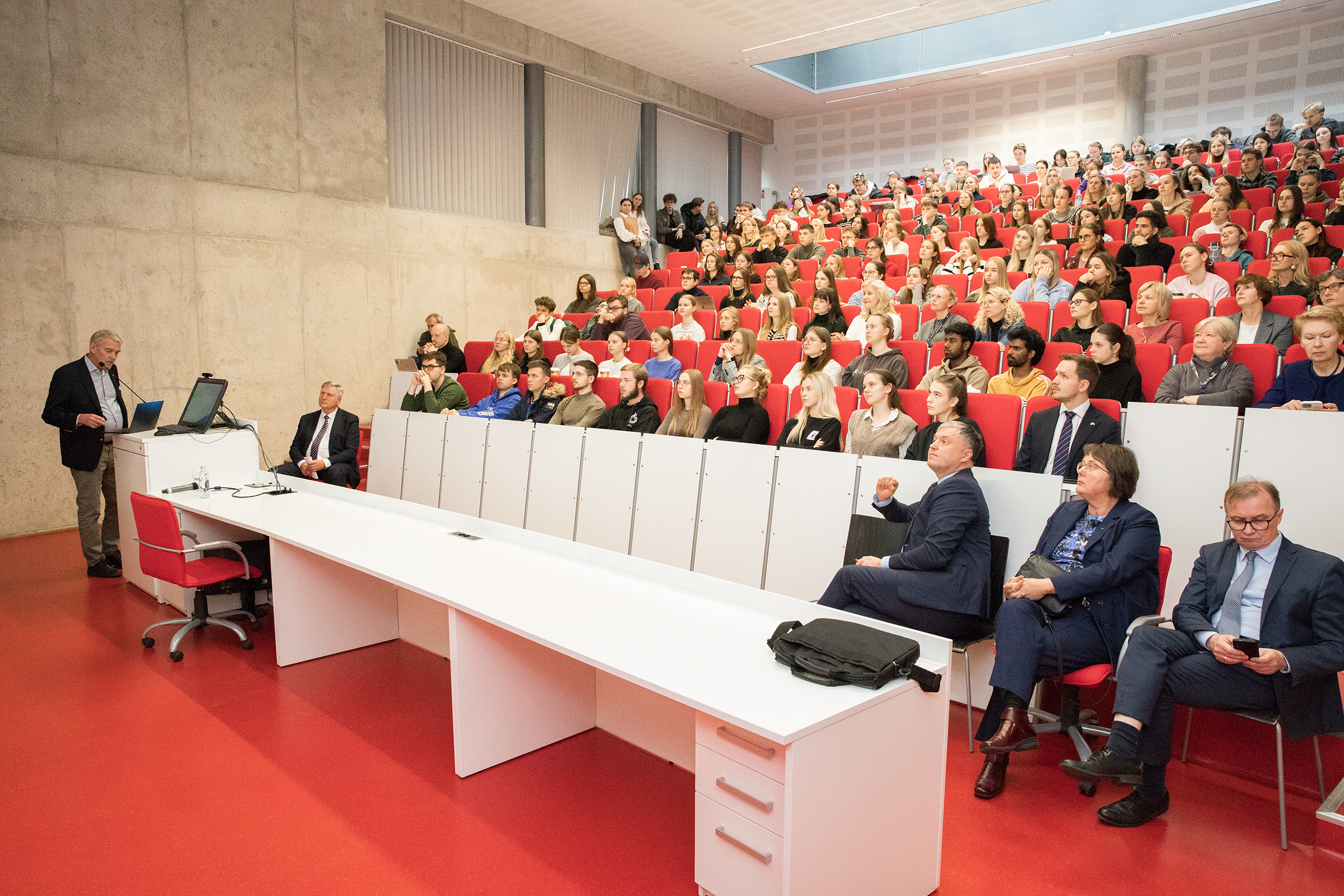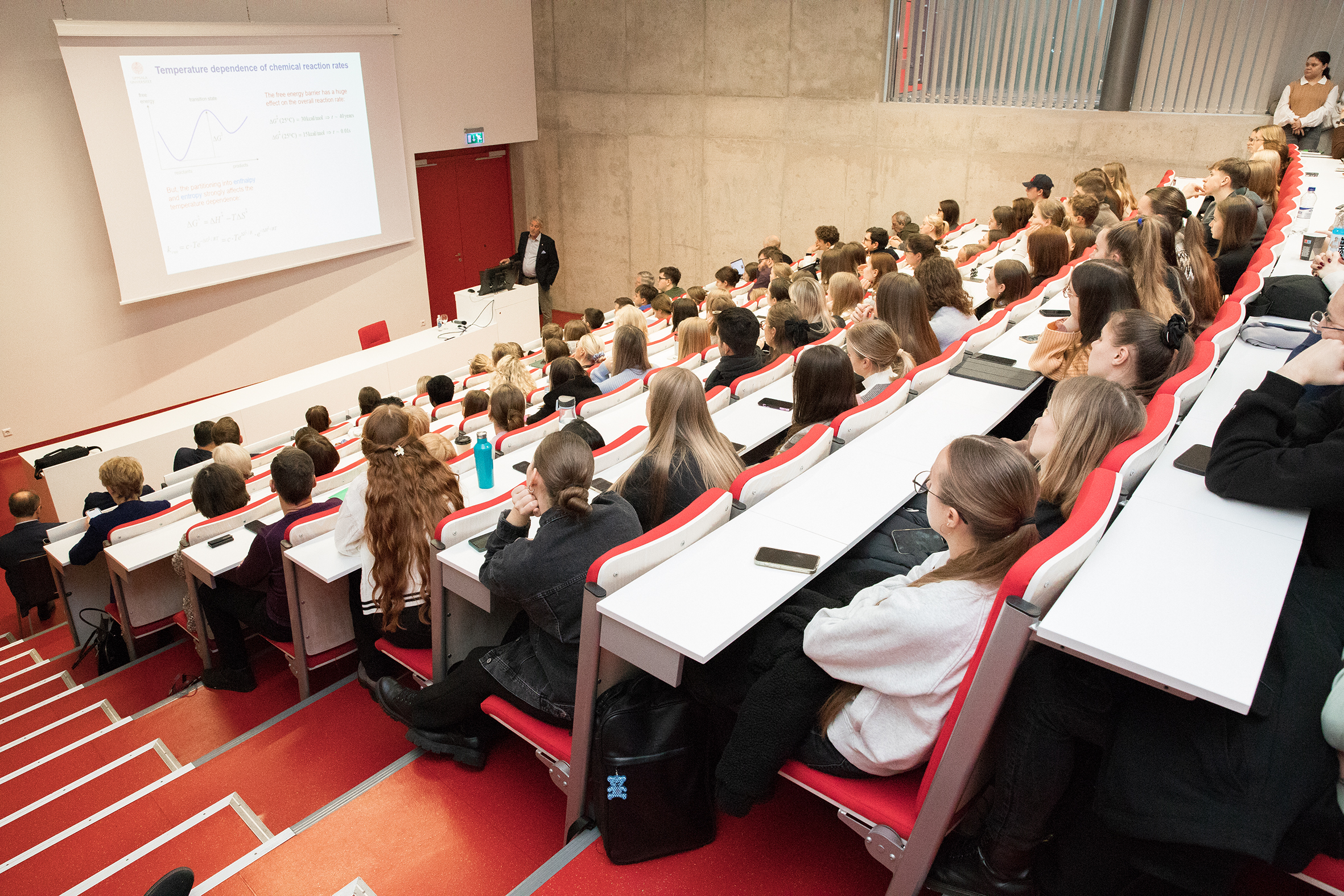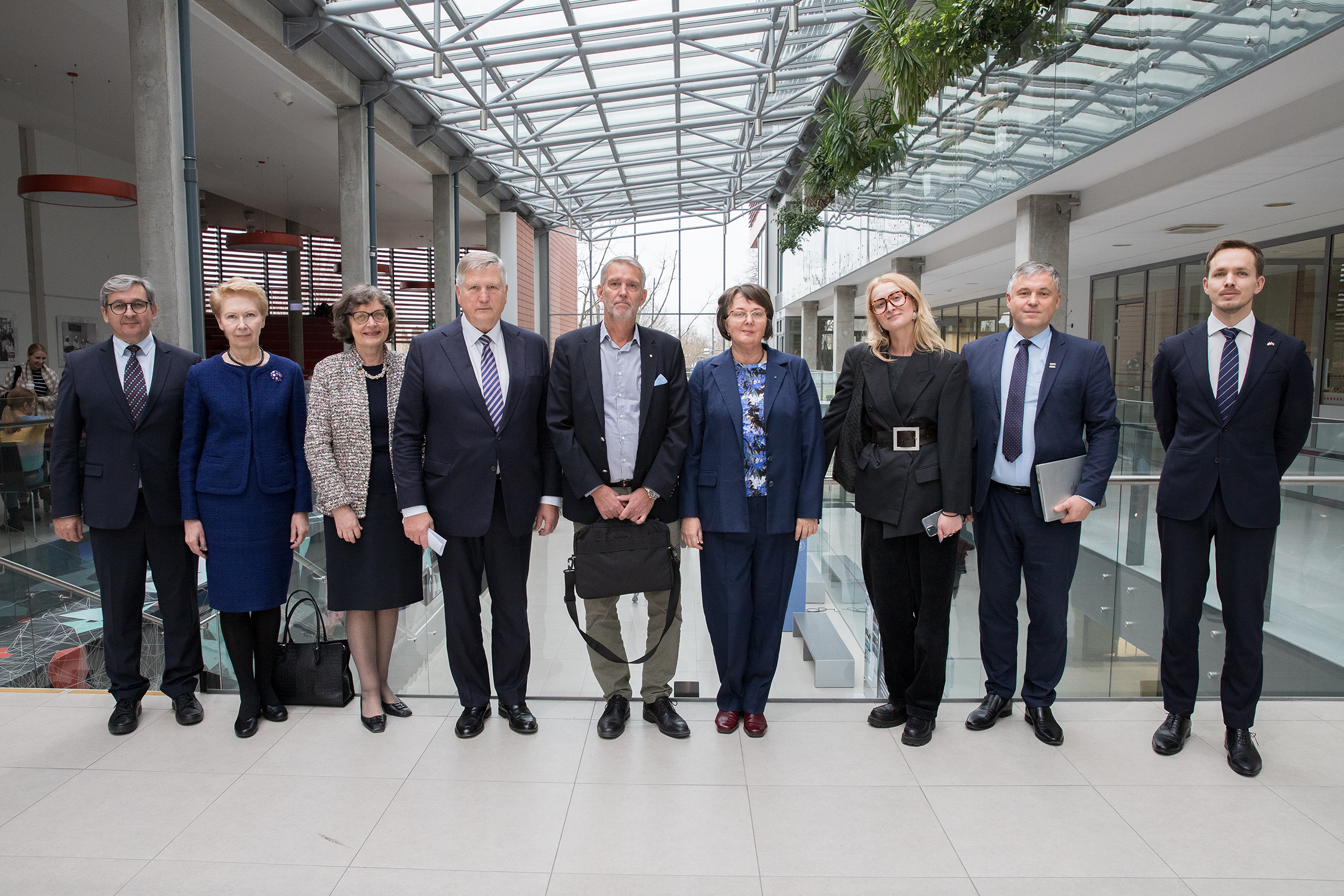Renowned Swedish Biochemist Prof. Johan Åqvist: The Greatest Discoveries Often Come by Chance
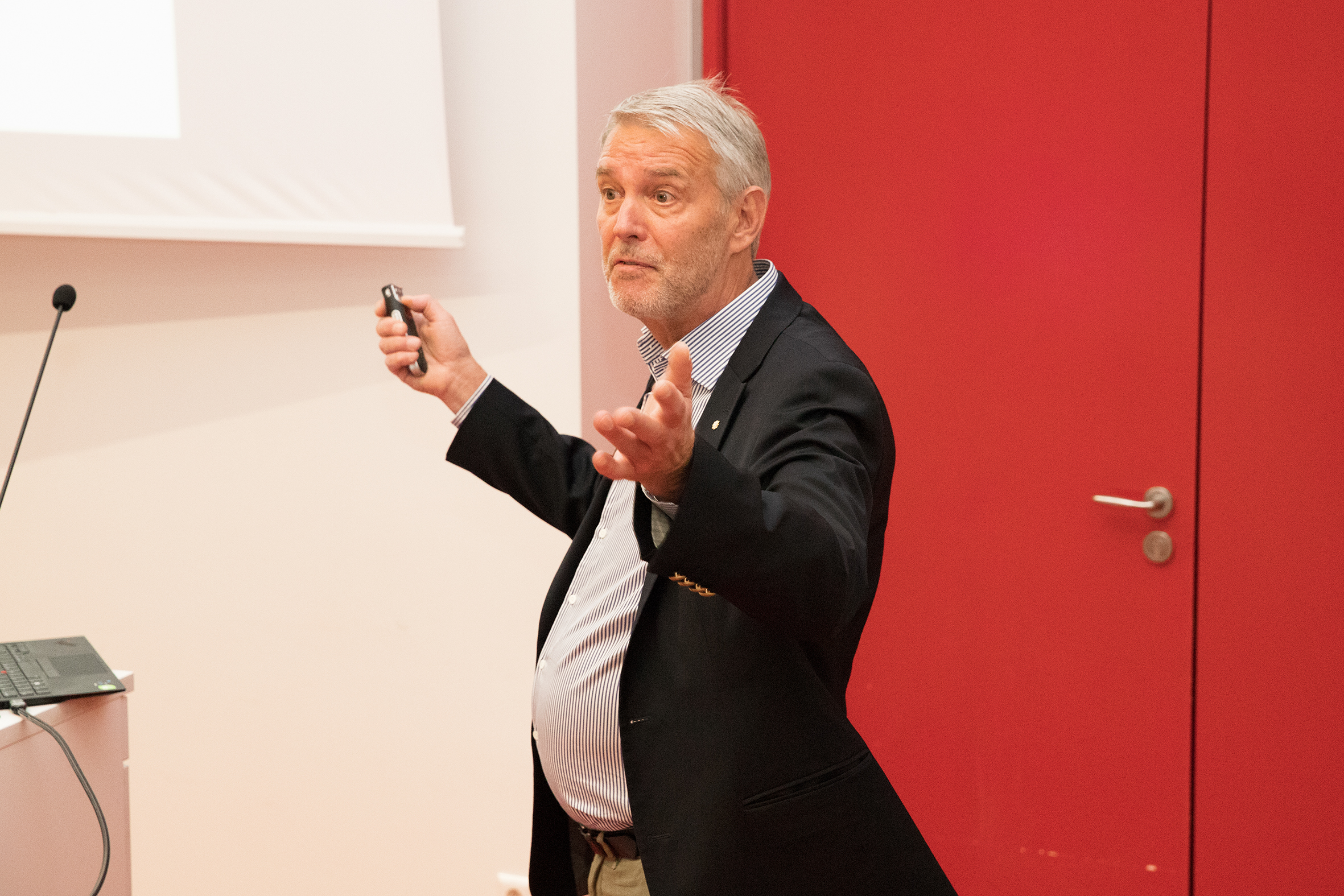
On 14 November, the Lithuanian University of Health Sciences (LSMU) hosted Prof. Dr. Johan Åqvist from Uppsala University, the distinguished Swedish biochemist, member of the Royal Swedish Academy of Sciences, and a former member of the Nobel Committee for Chemistry.
The professor was accompanied by His Excellency Lars Wahlund, Swedish Ambassador Extraordinary and Plenipotentiary; Robin Rinaldo, Second Secretary; Ms Aušra Juozapaitytė, Policy and Business Promotion Officer of the Embassy of the Kingdom of Sweden, and Dr. Jurgita Grigienė, Honorary Consul of the Kingdom of Sweden.
During their visit, the Swedish delegation met with Prof. Dr. Rimantas Benetis, LSMU Rector; Prof. Habil. Dr. Daiva Rastenyte, Chancellor of the Medical Academy; Prof. Habil. Dr. Vaiva Lesauskaitė, Vice-Rector for Research, Prof. Habil. Dr. Renaldas Jurkevičius, Vice-Rector for Clinical Medicine and Director General of Kauno Klinikos; Prof. Dr. Andrius Macas, Dean of the Faculty of Medicine; and Dr. Alvidas Šarlauskas, Vice-Dean of the International Relations and Study Centre.
The discussions covered LSMU’s directions, strengths, and institutional structure. LSMU Rector Prof. Rimantas Benetis emphasised the University’s unique role as a specialised health sciences institution – the largest of its kind in Lithuania, dedicated to the study and advancement of human and animal health and life sciences.
With a history spanning over a century, LSMU is now a modern and evolving institution recognised and achieving high rankings both nationally and internationally. As one of Lithuania’s leading hubs of scientific research, the University attracts talented young people from around the globe, with over 1,800 international students from 88 countries currently enrolled.
As part of his visit, Prof. Johan Åqvist delivered a lecture titled How Enzymes Adapt to the Cold to the University community.
“It will be fascinating to hear your lecture; perhaps it could open up new opportunities for collaboration,” – said LSMU Rector Prof. Benetis.
Prof. Åqvist’s lecture, which generated considerable interest among students, delved into the structural and energetic principles of enzyme adaptation to the cold. He explained how atomic computer simulations can reveal the relationship between enzyme reaction rates and temperature and offer insights into how enzymes evolve in species that have adapted to cold conditions in different ways.
“Enzymes in ectothermic species adapted to cold environments maintain surprisingly high catalytic rates at low temperatures, where regular enzymes experience significant activity reduction. These cold-adapted enzymes exhibit specific universal characteristics, reflecting their evolutionary optimisation,” – explained Prof. Johan Åqvist.
The participants were keen to learn about Prof. Åqvist’s professional objectives and future endeavours. Students, in particular, were curious about the qualities required for a scientist aiming for a Nobel Prize.
“It’s not easy to find a formula for winning a Nobel Prize across different scientific fields. What matters most are good ideas. Major breakthroughs often happen by chance. Inventors don’t always like to admit this, but, at least in my field, only a few Nobel Prizes have gone to large research groups. They are frequently awarded to smaller groups of scientists,” – observed the former Nobel Committee member.
Following his lecture, Prof. Johan Åqvist visited LSMU Emmanuel Levinas Centre and the Museum of the History of Lithuanian Medicine and Pharmacy.

